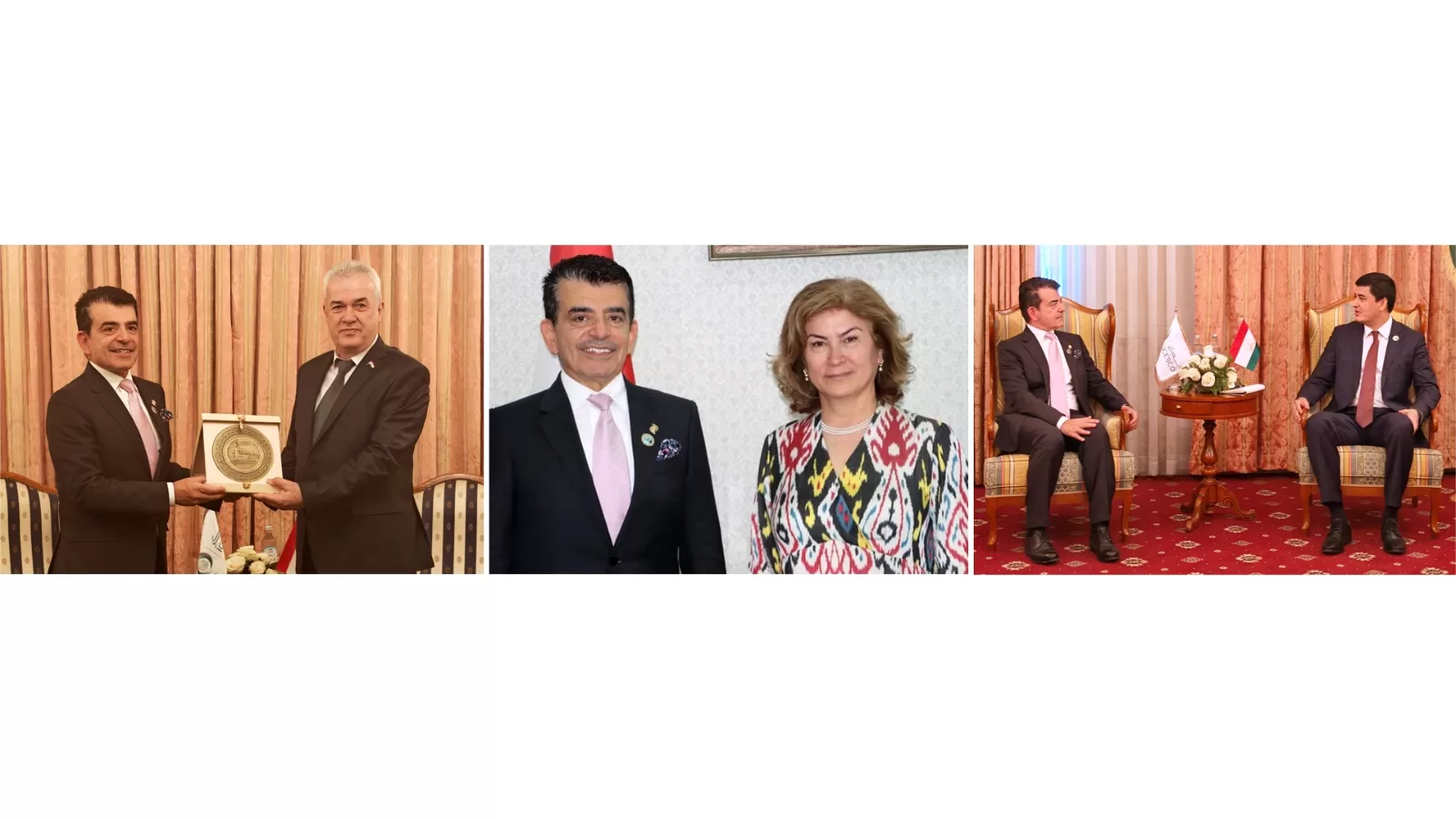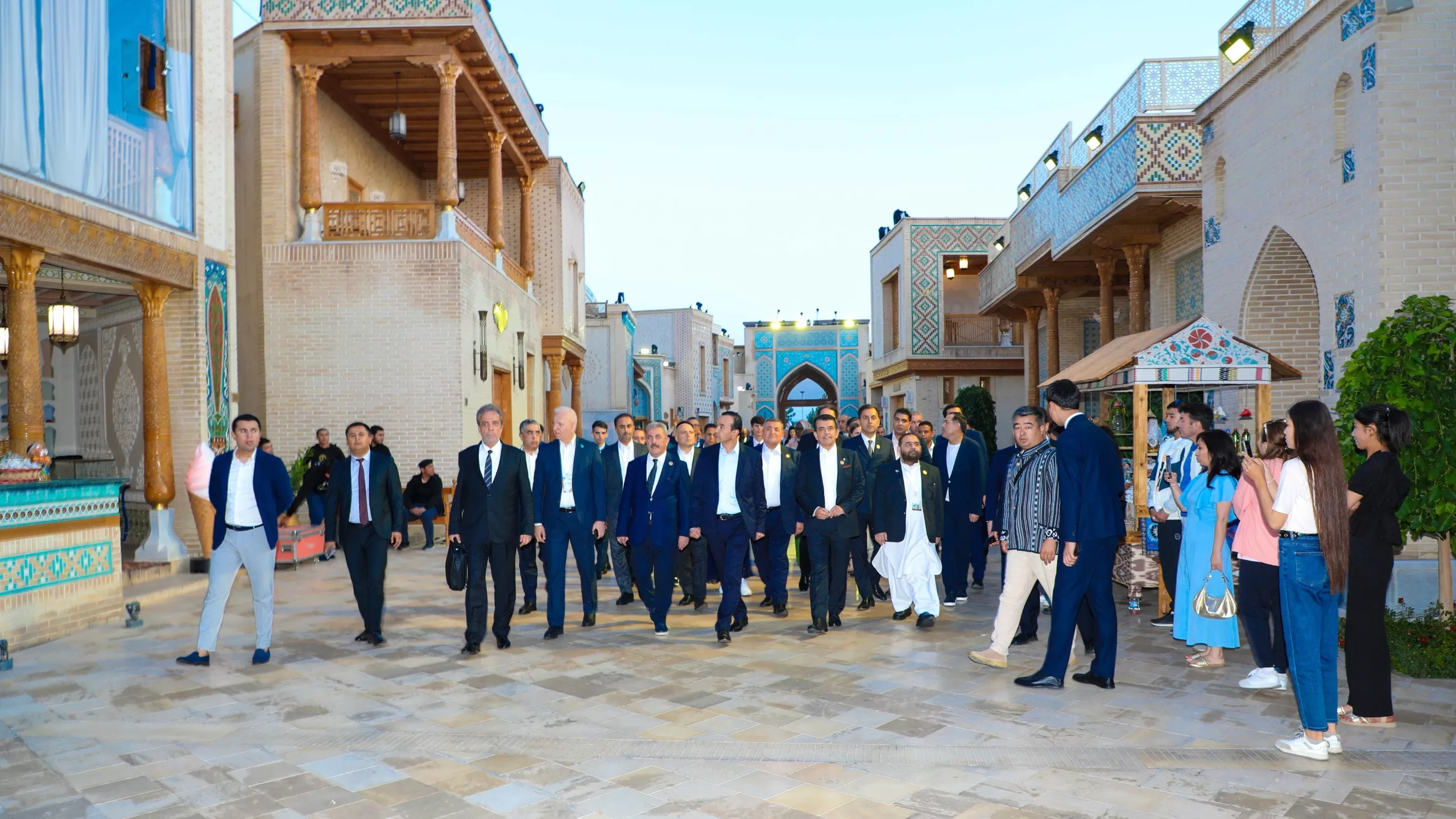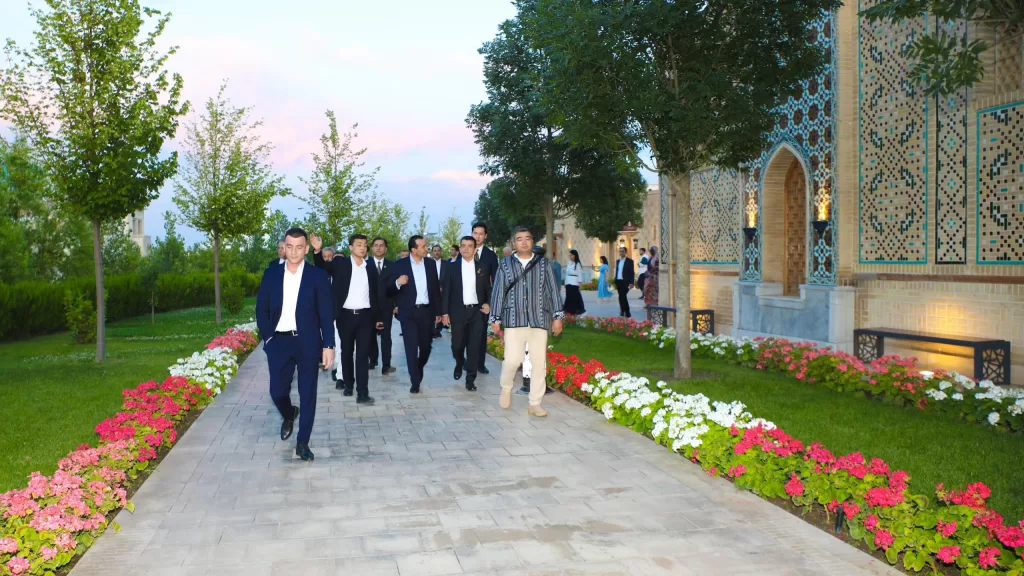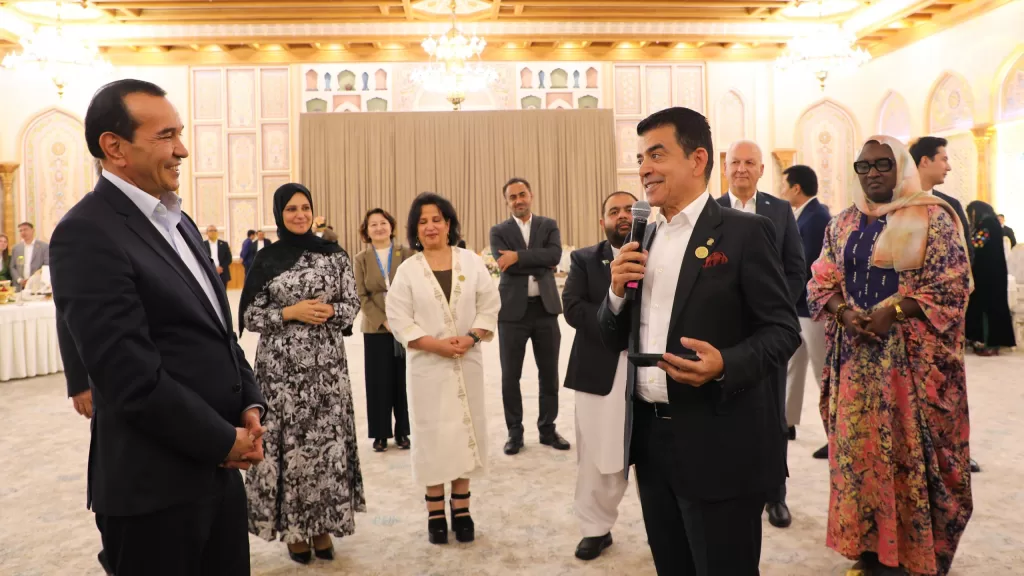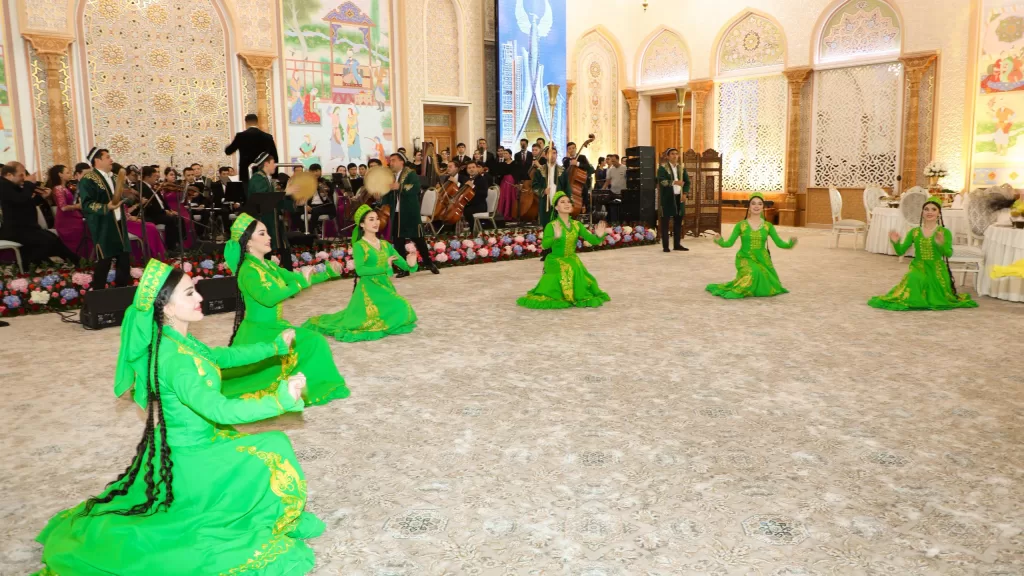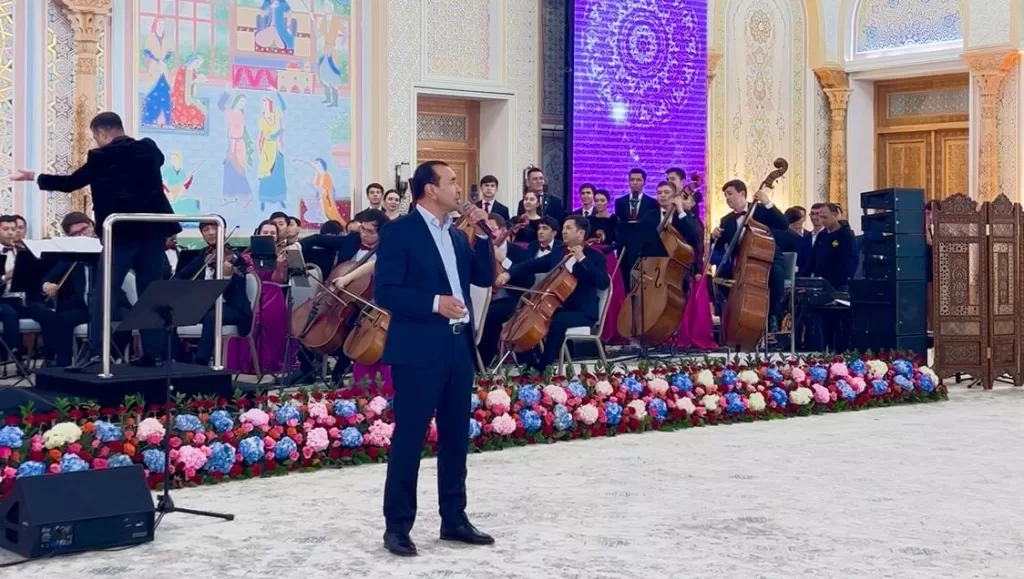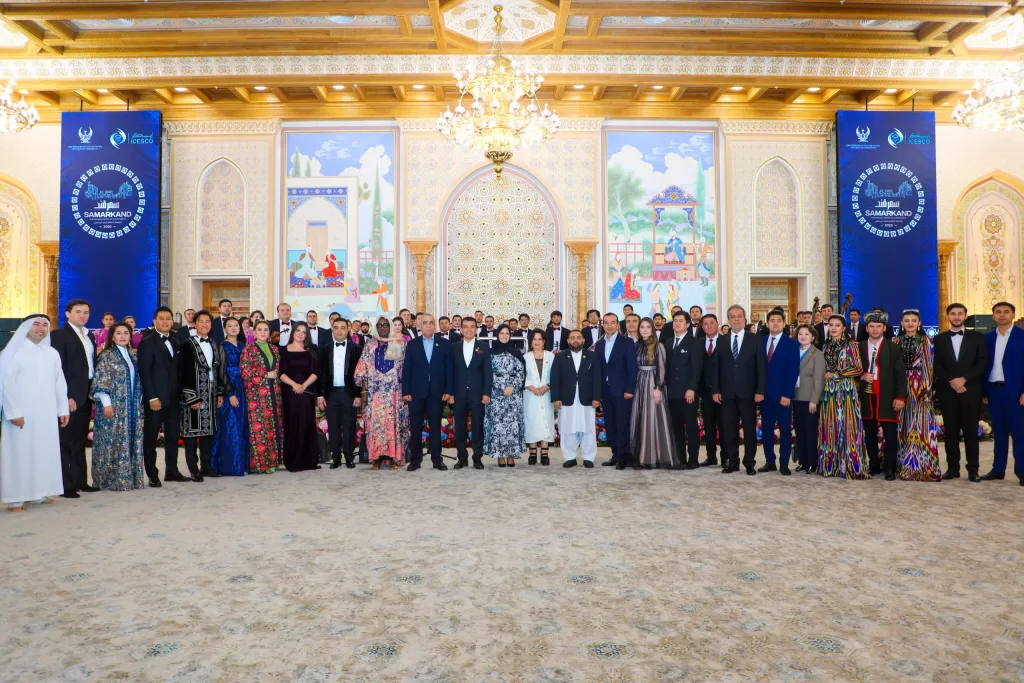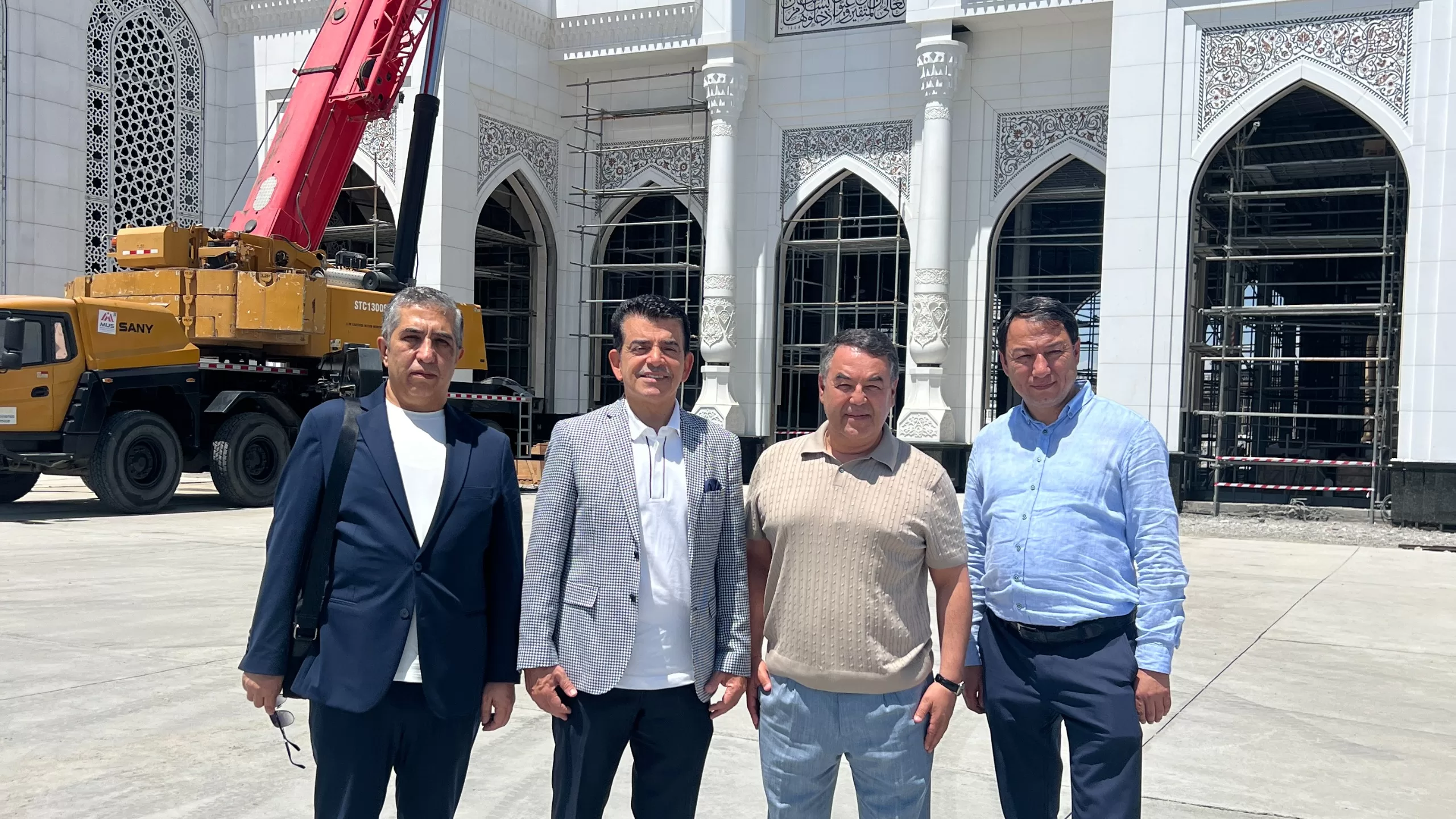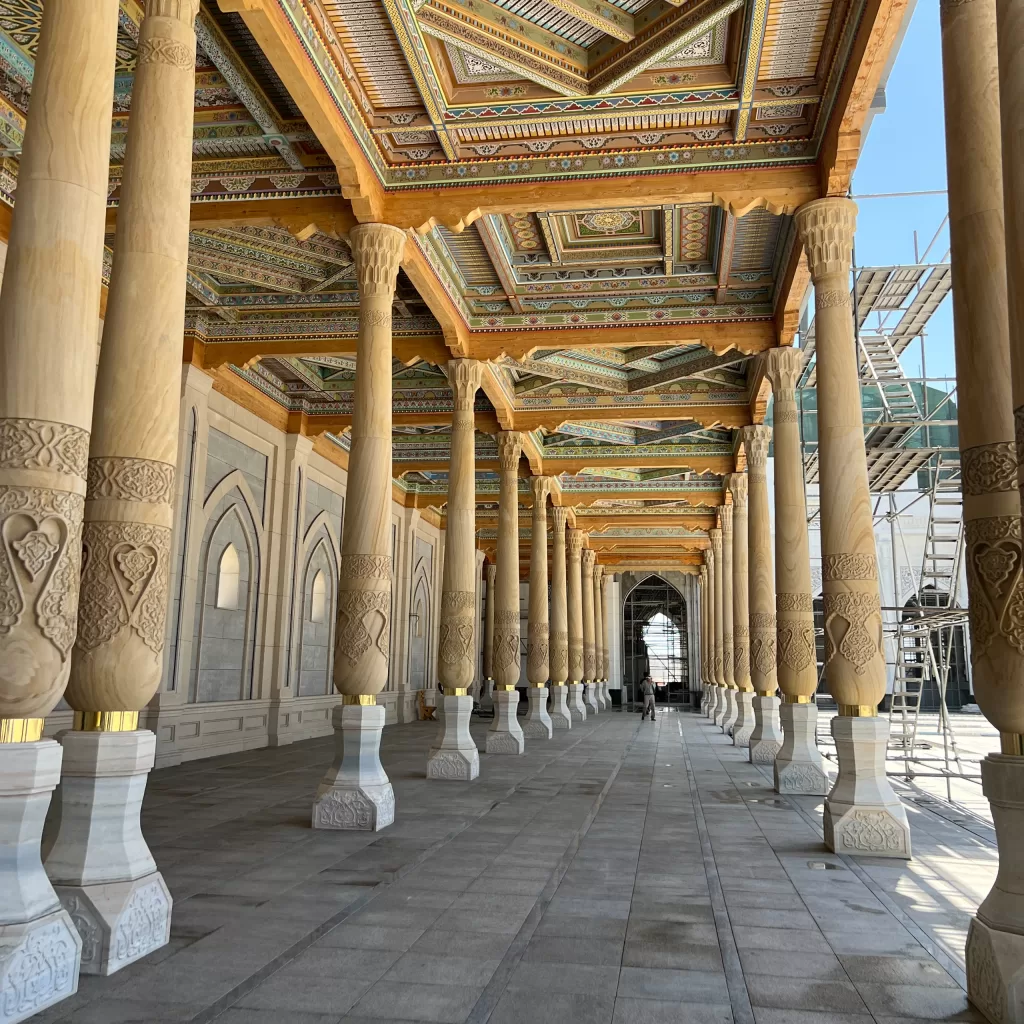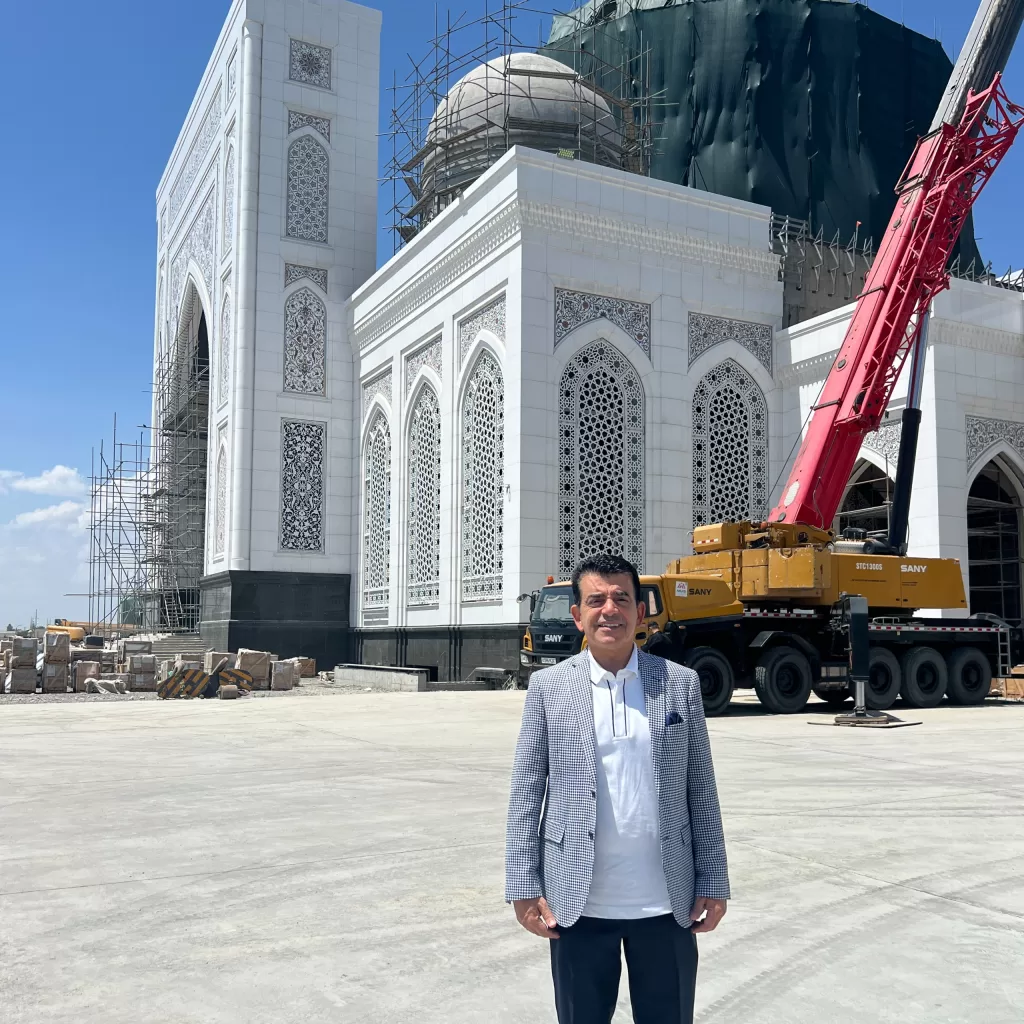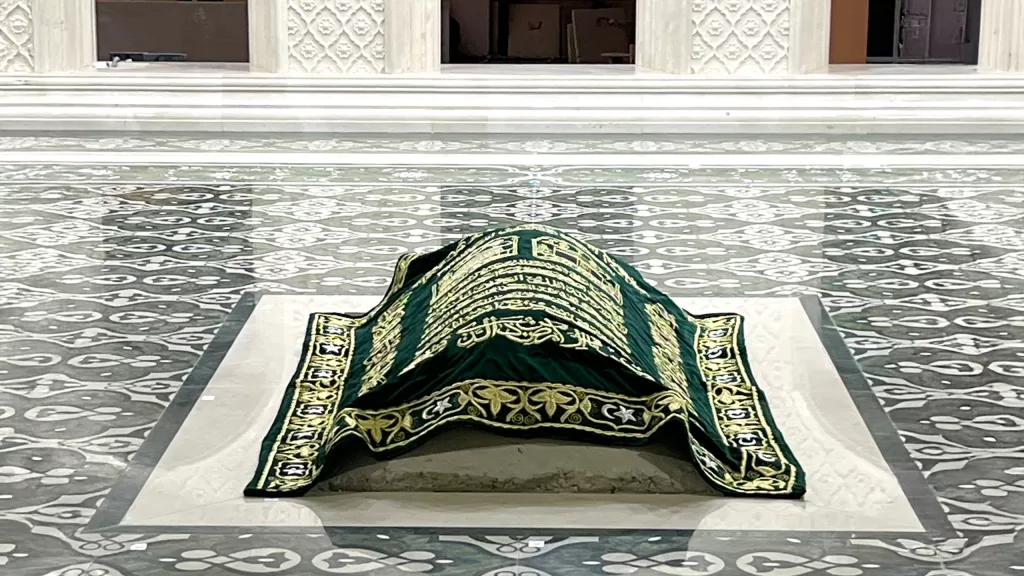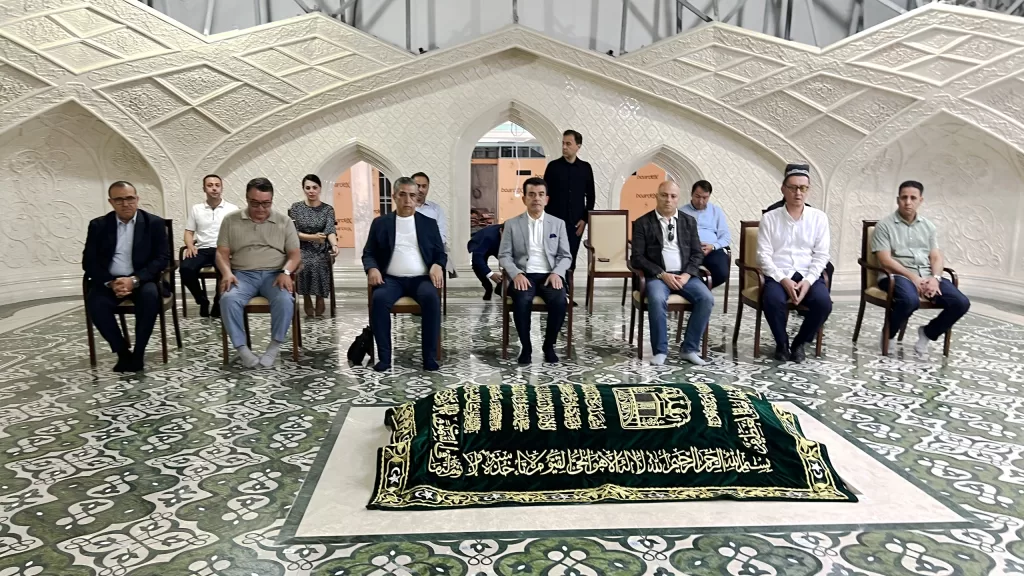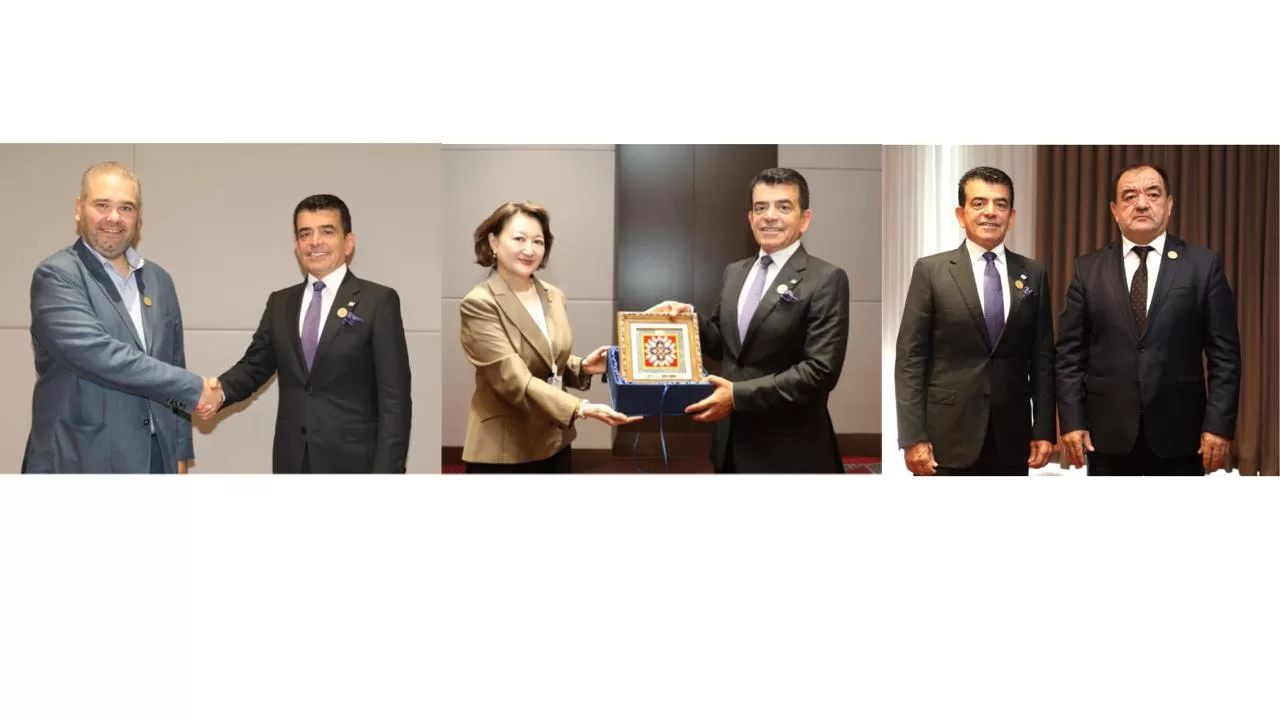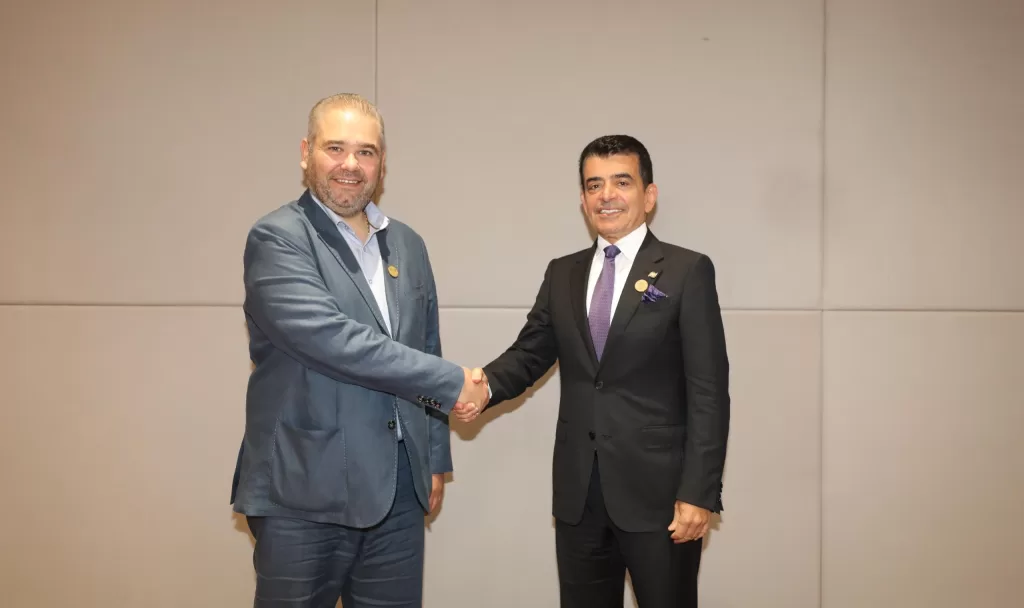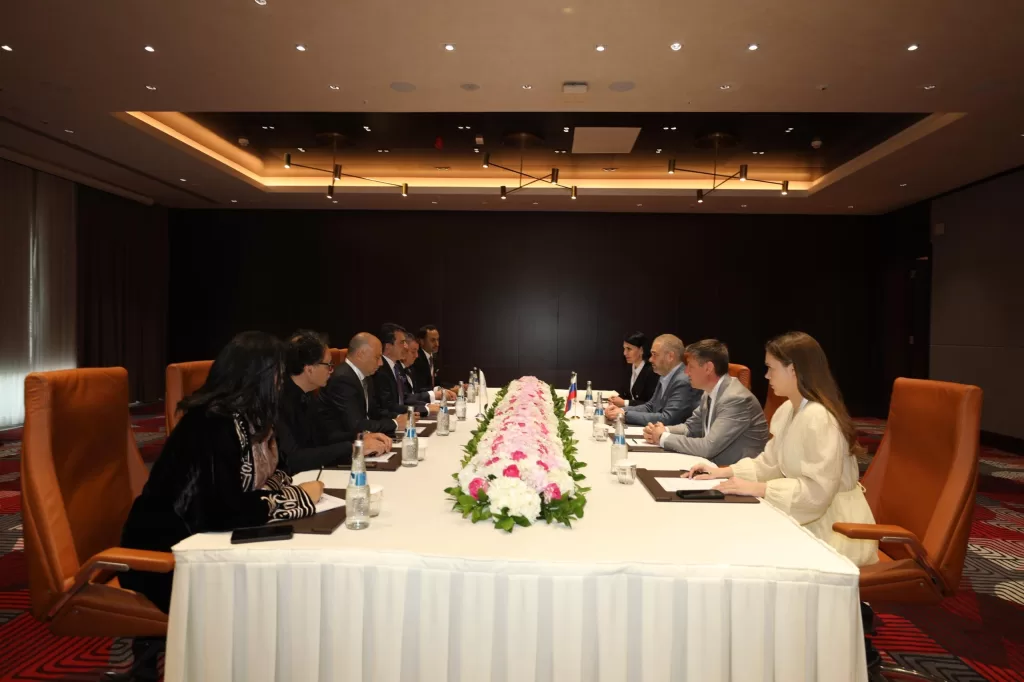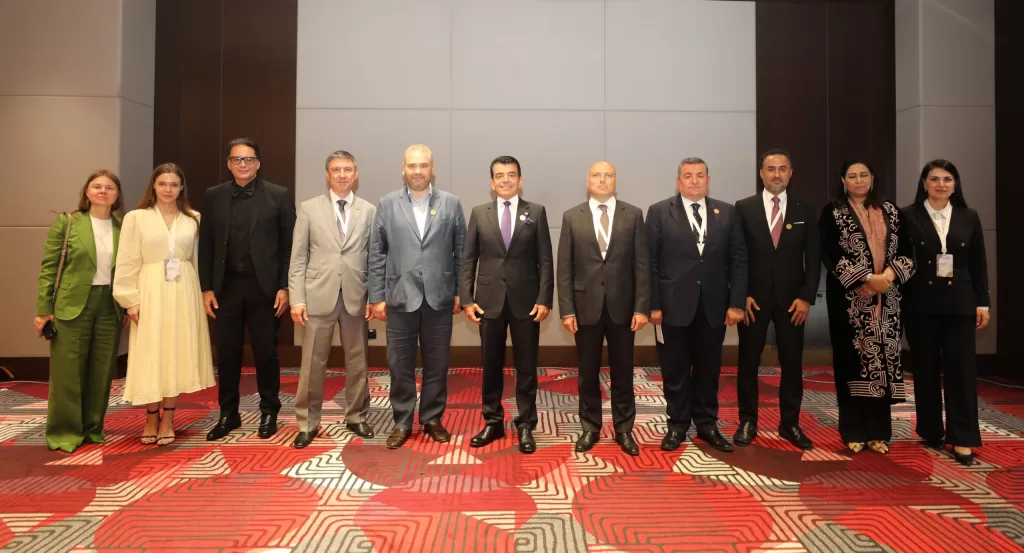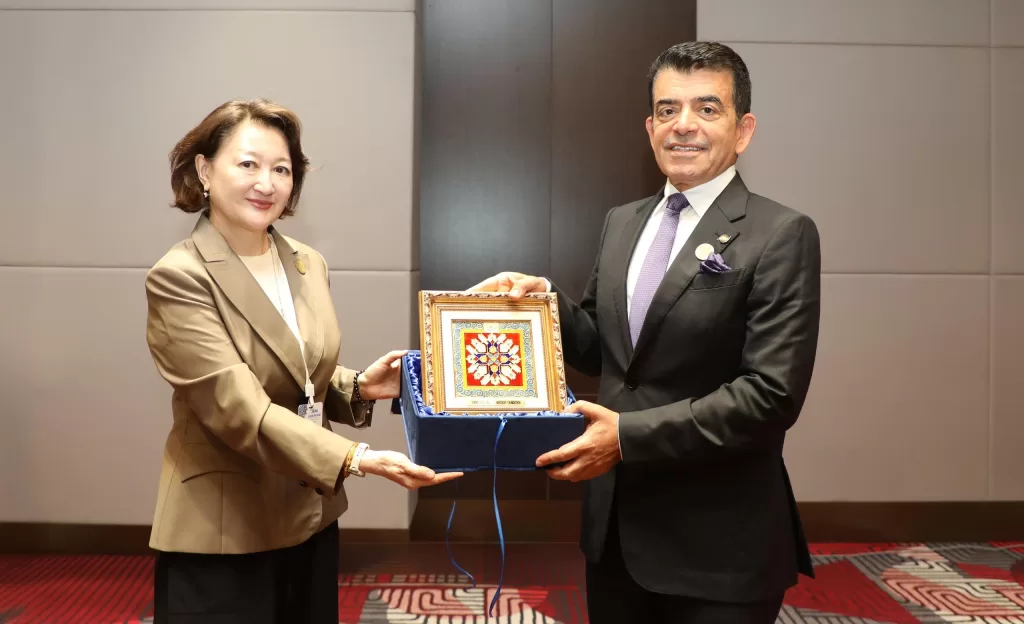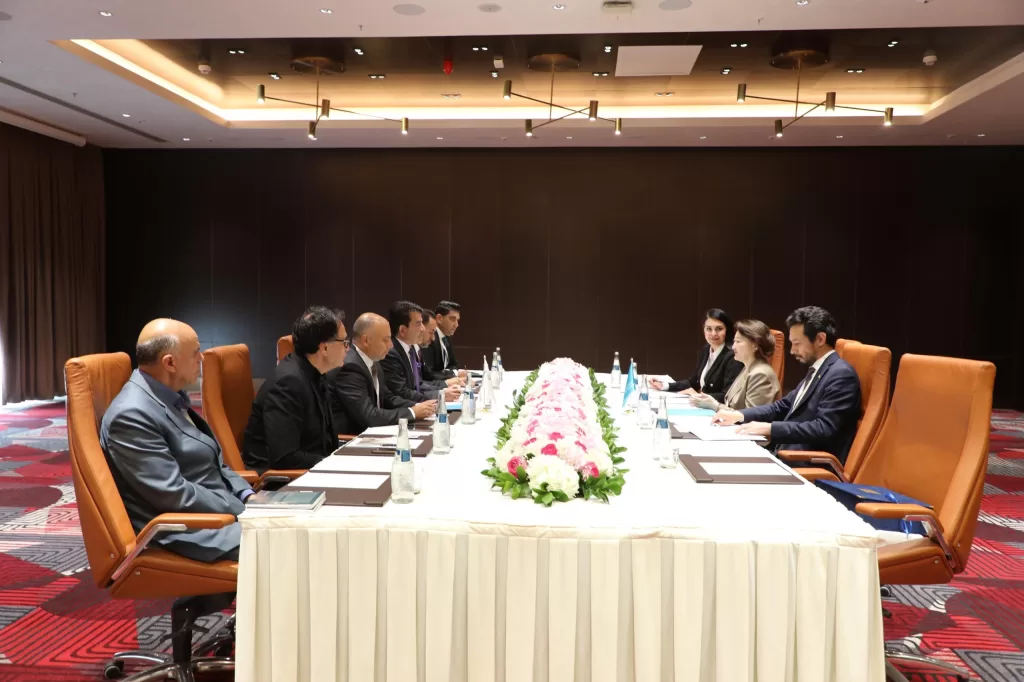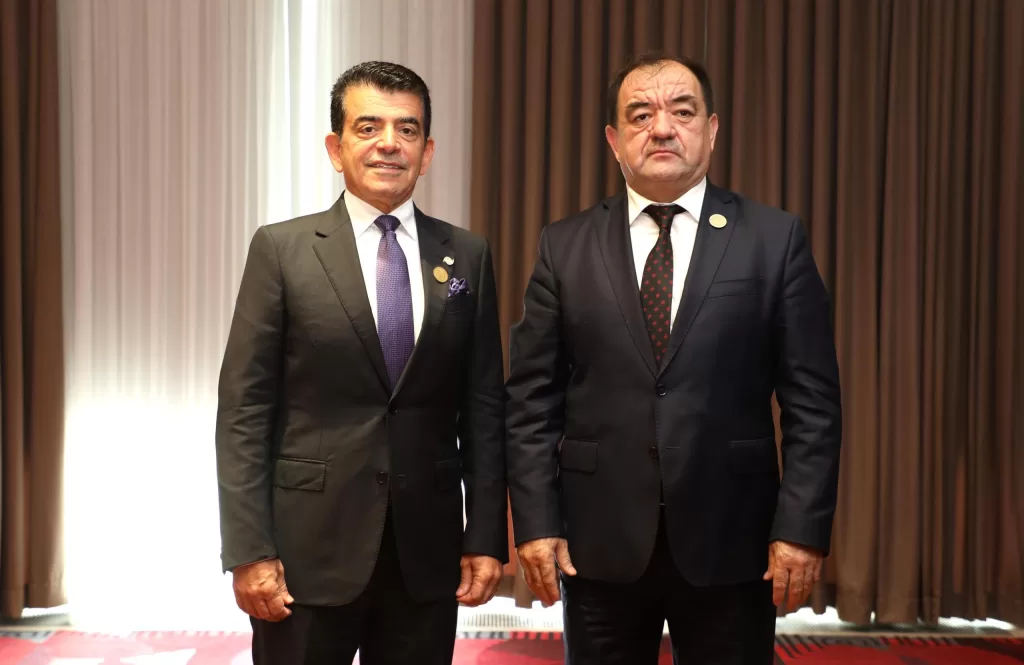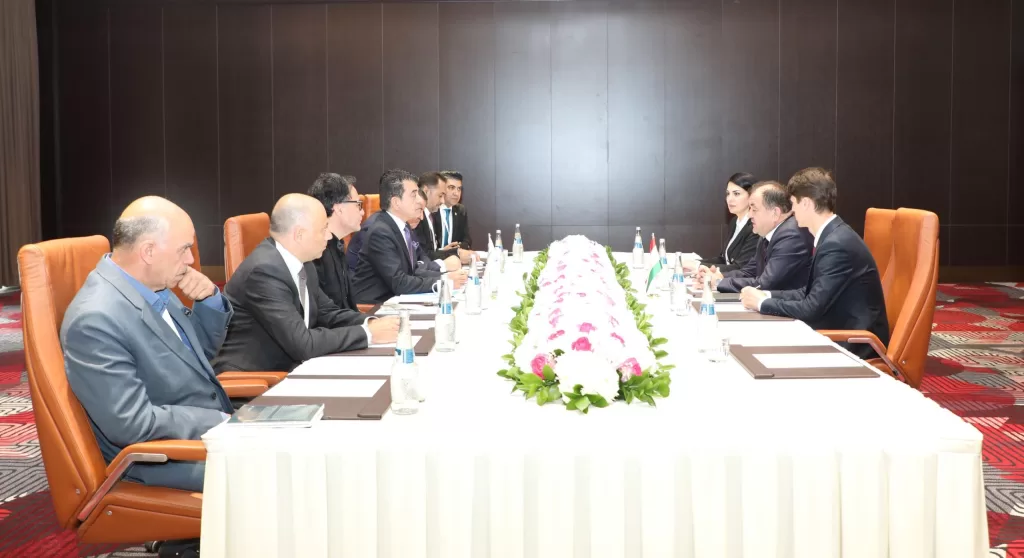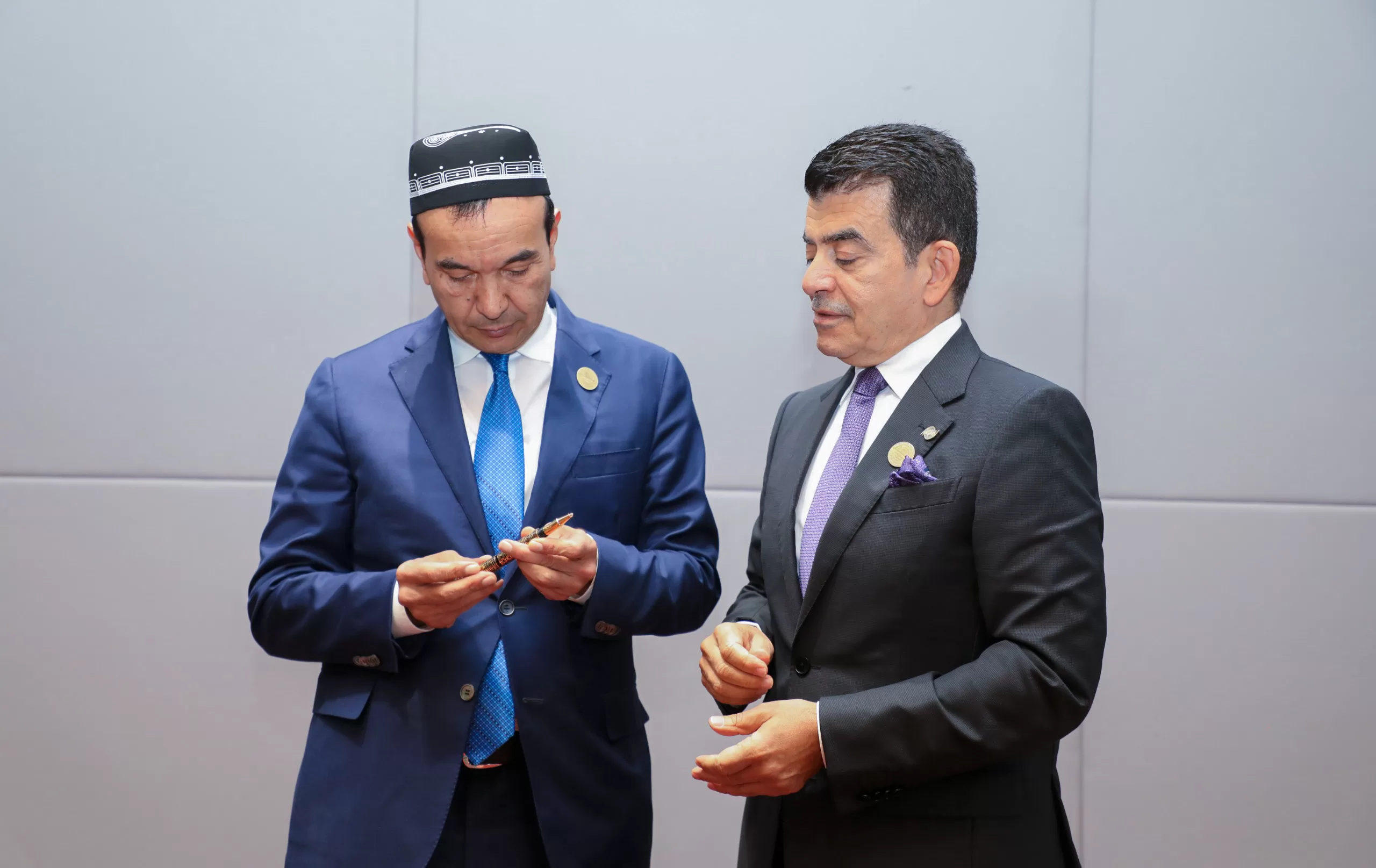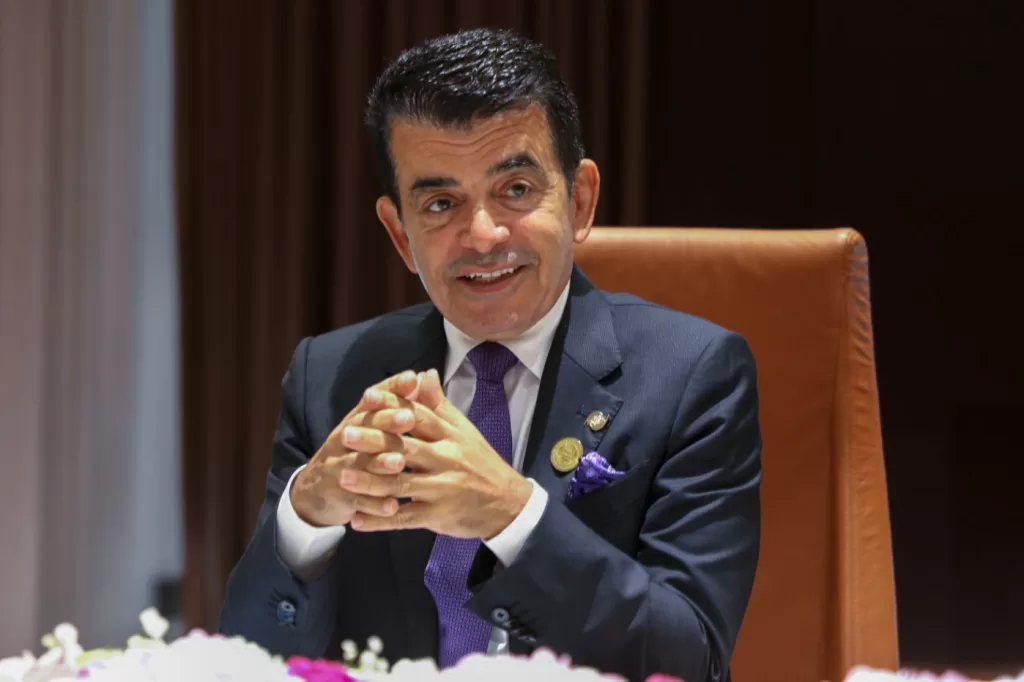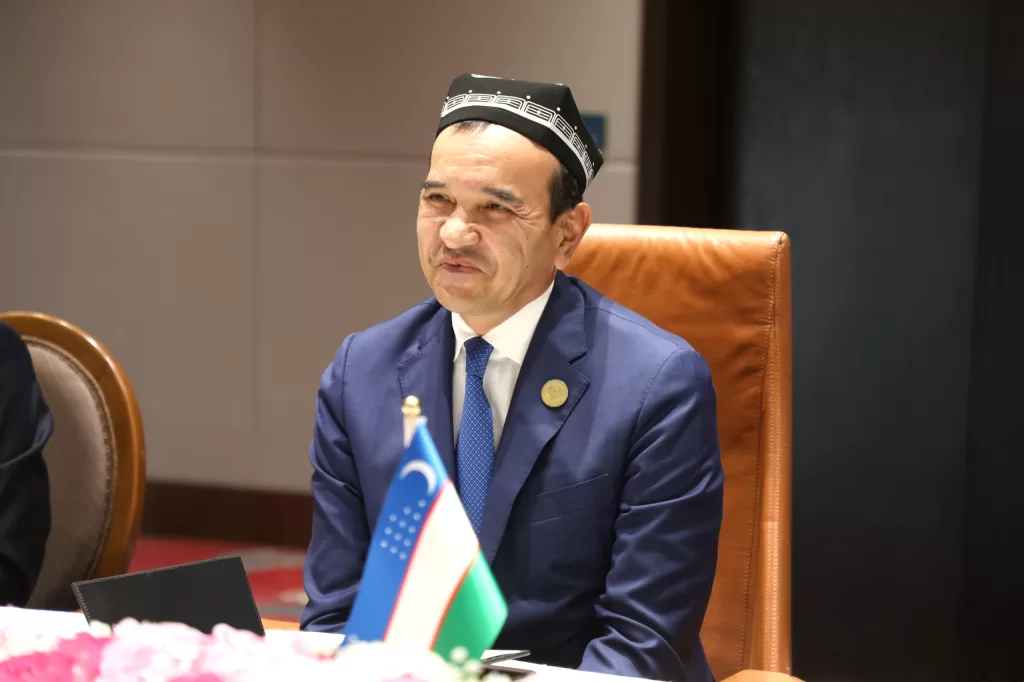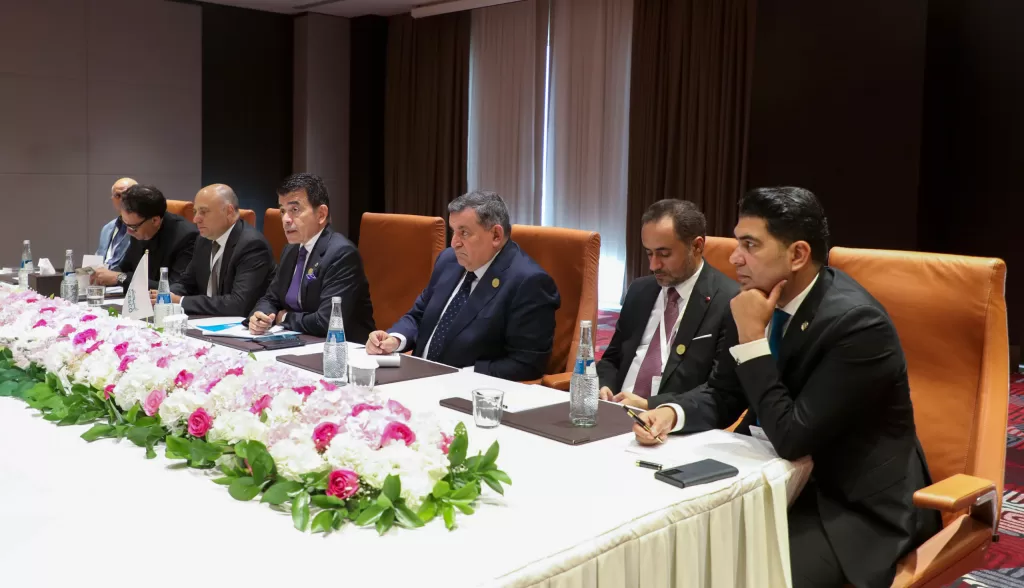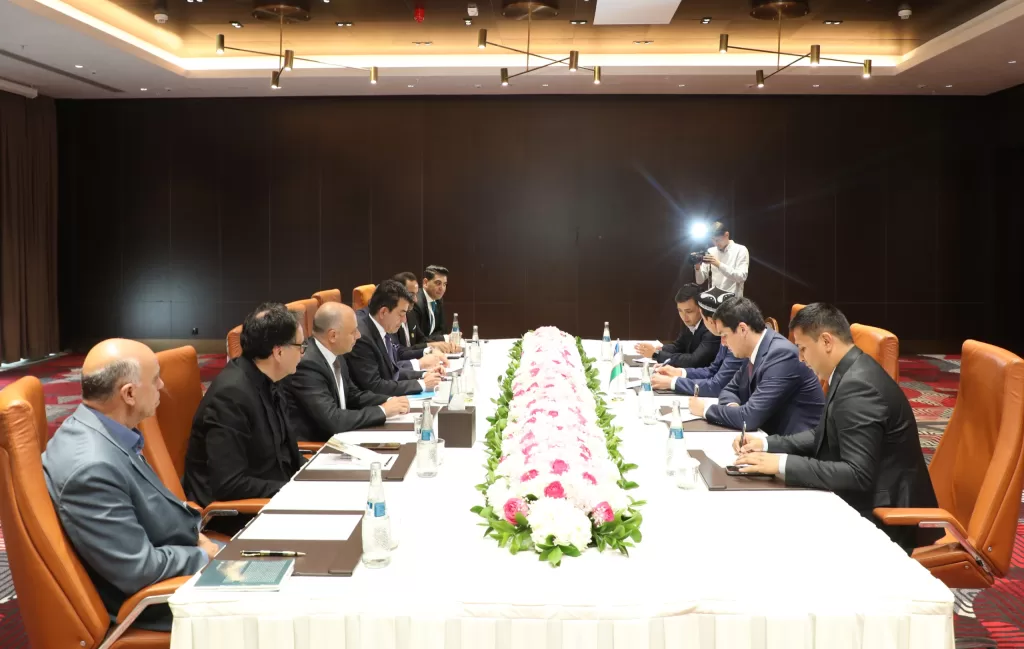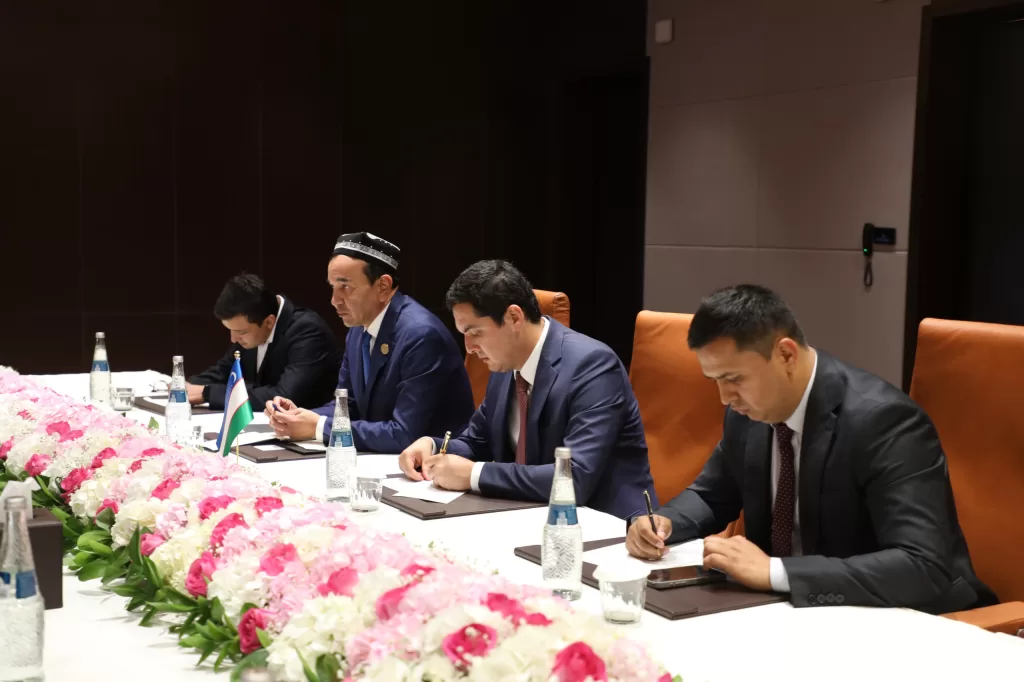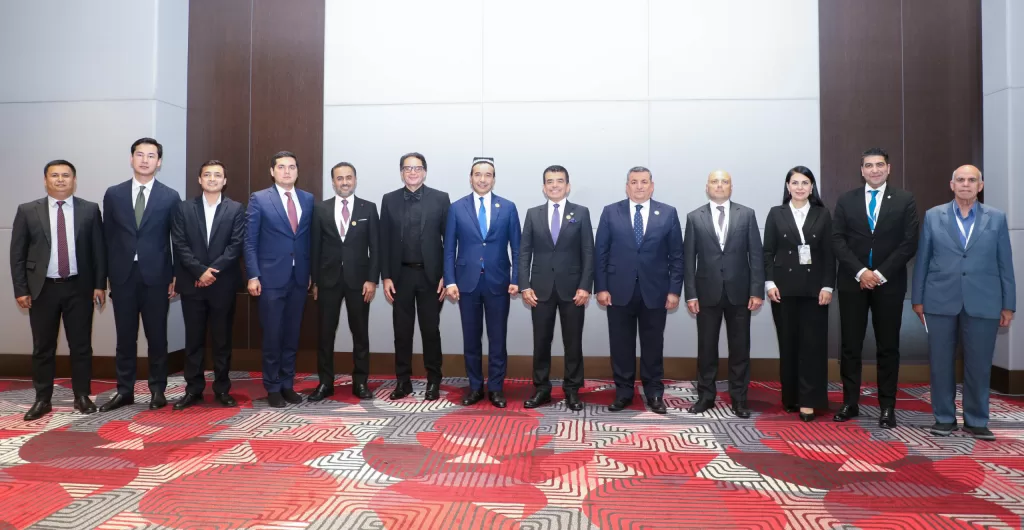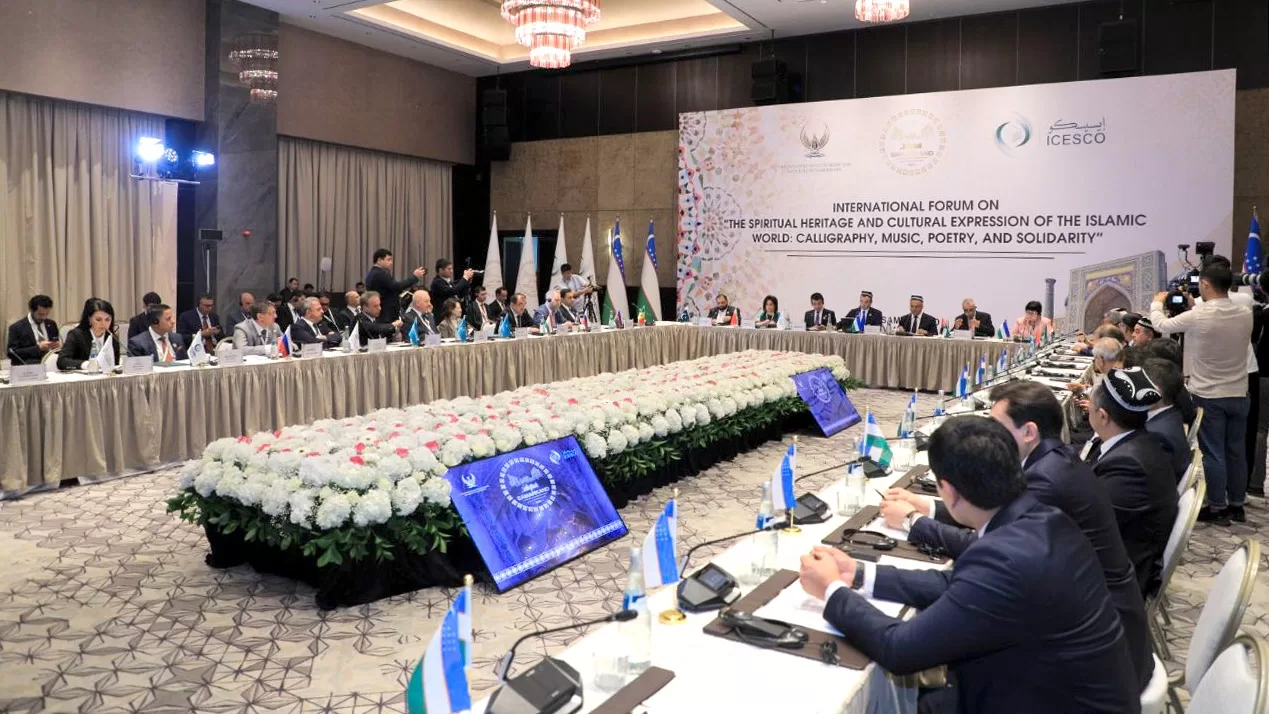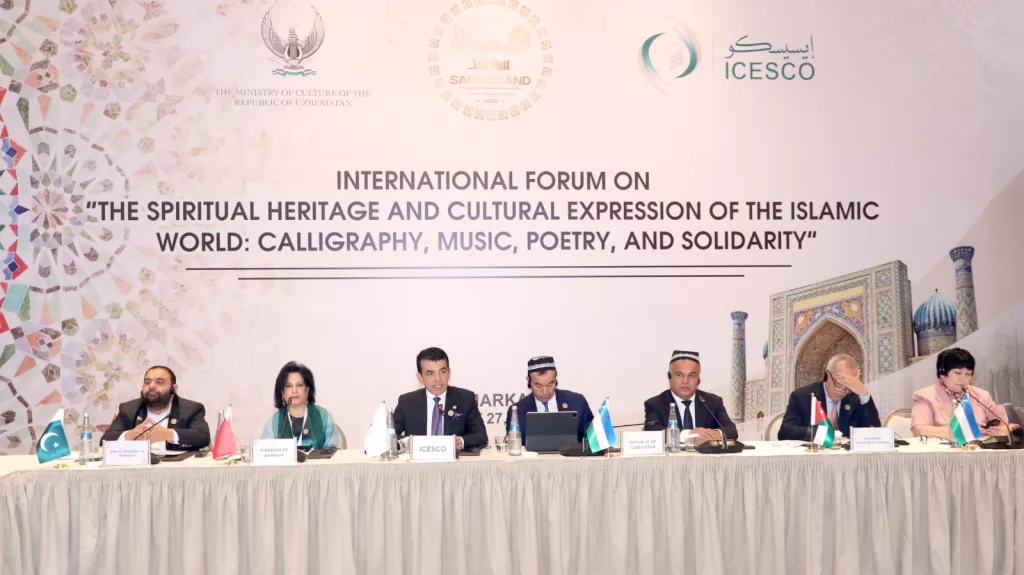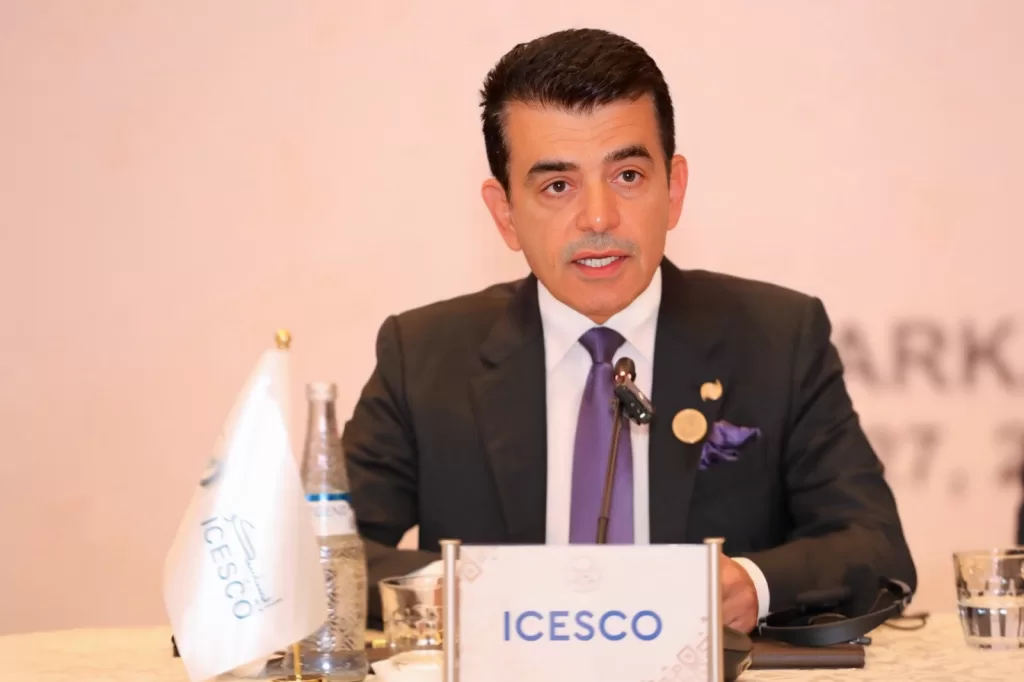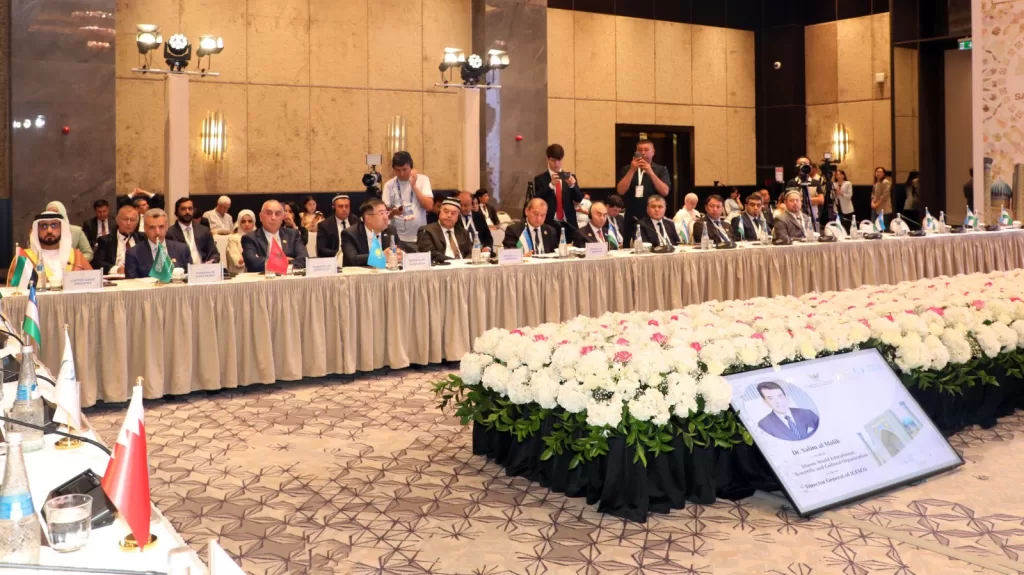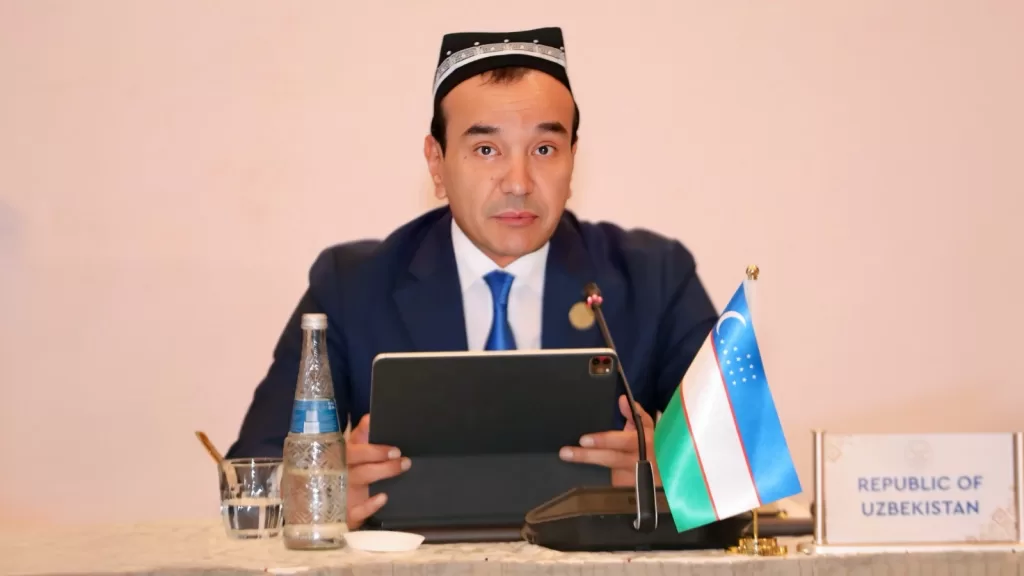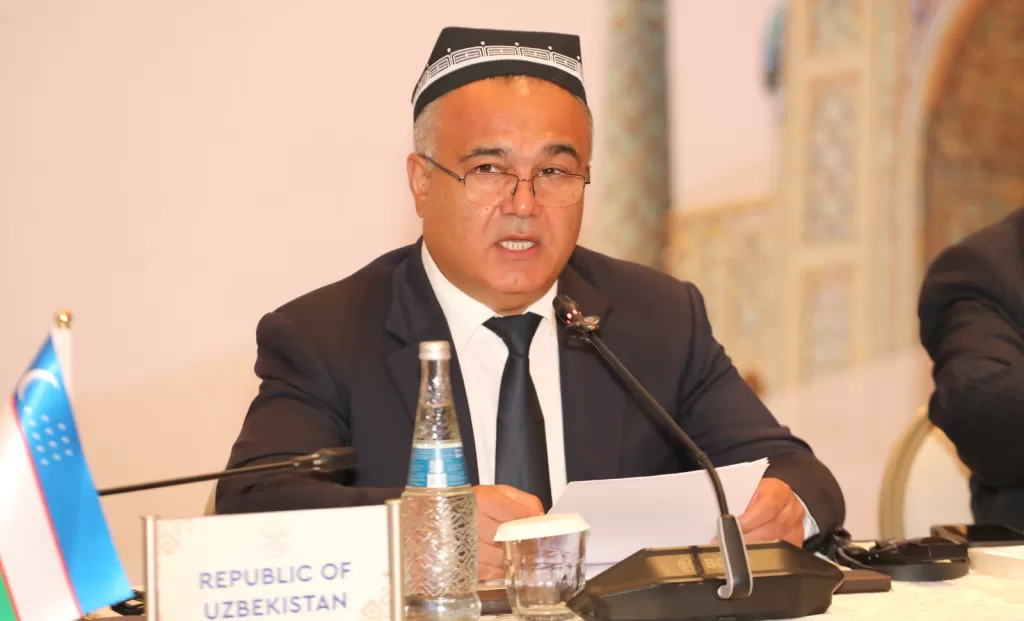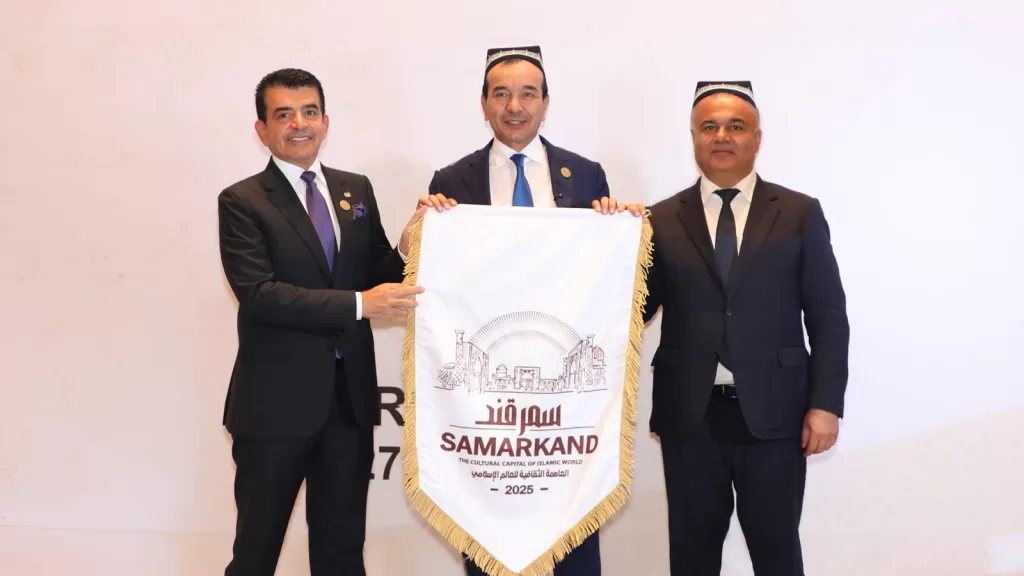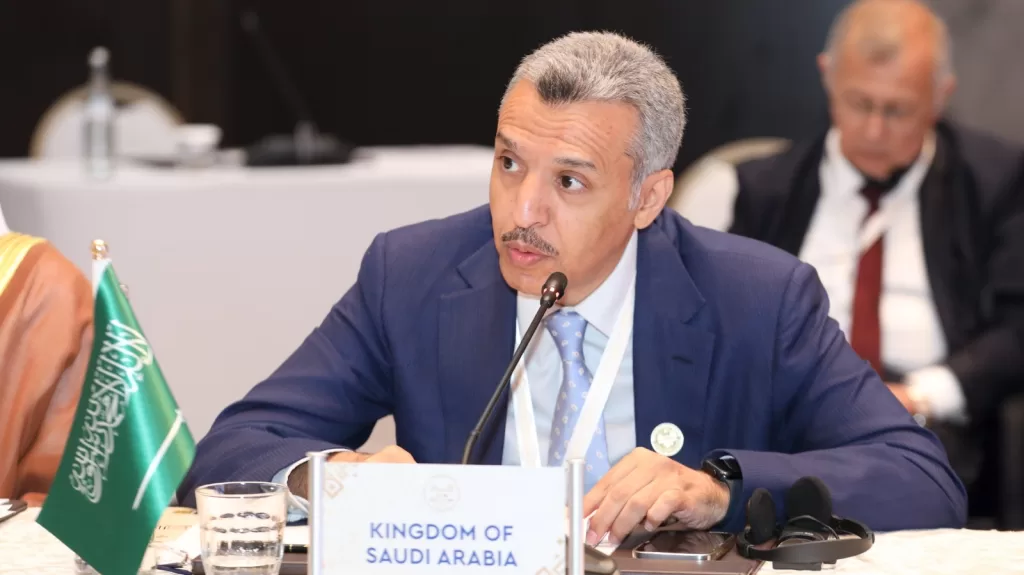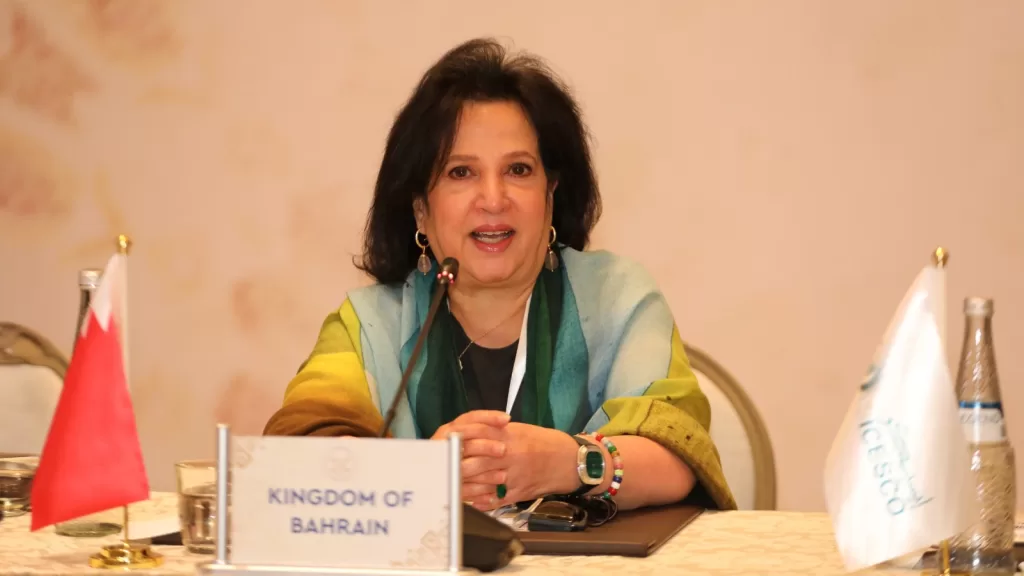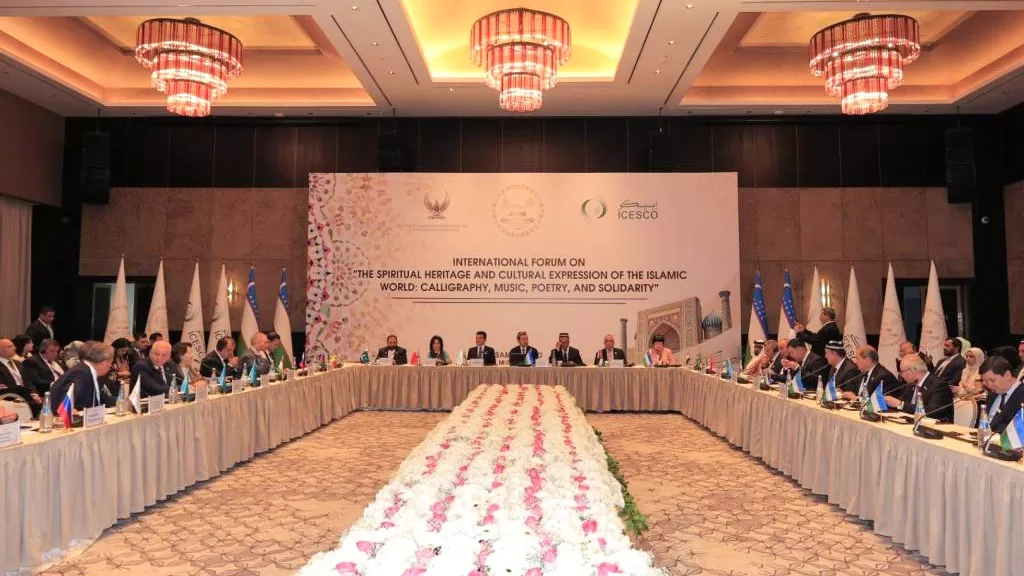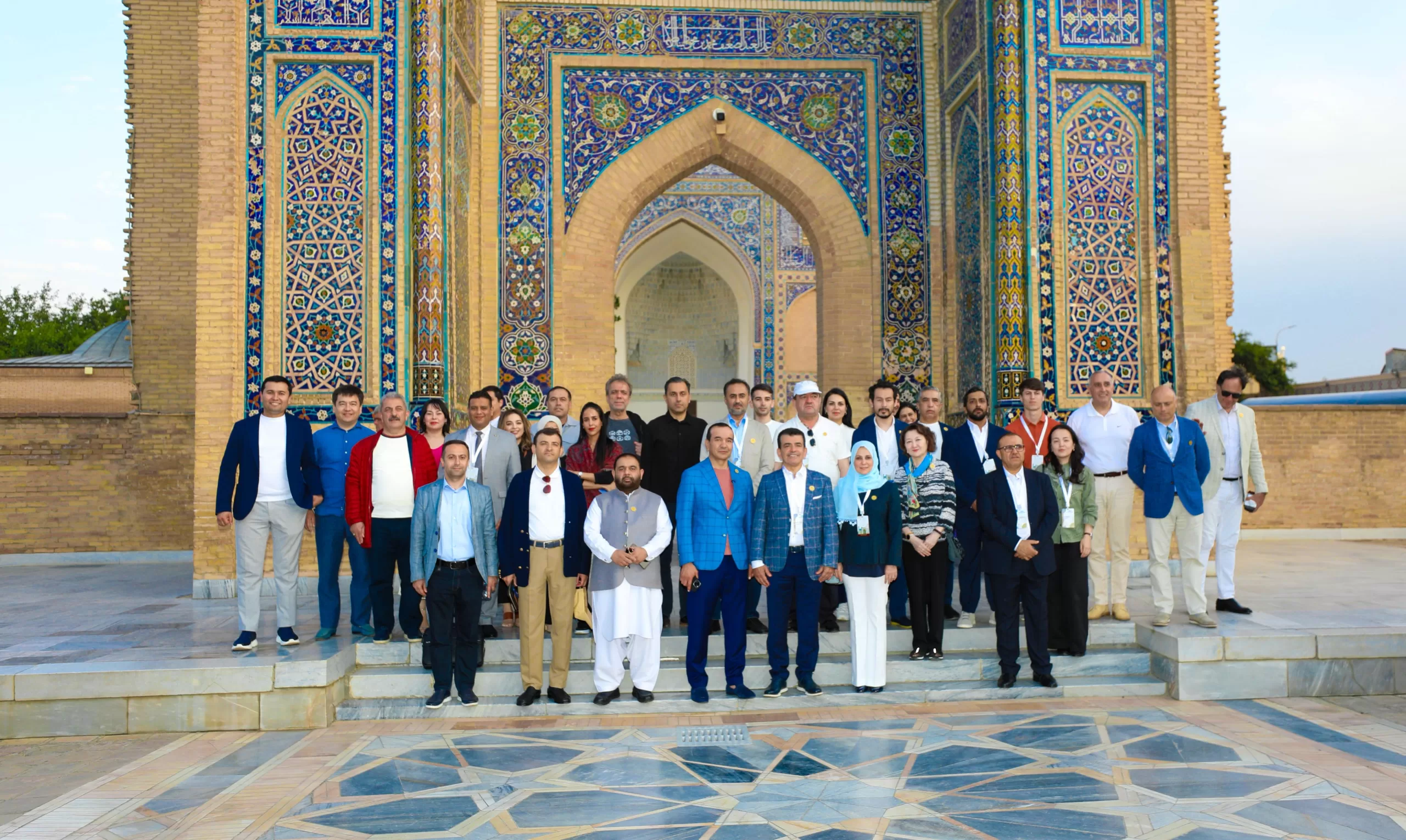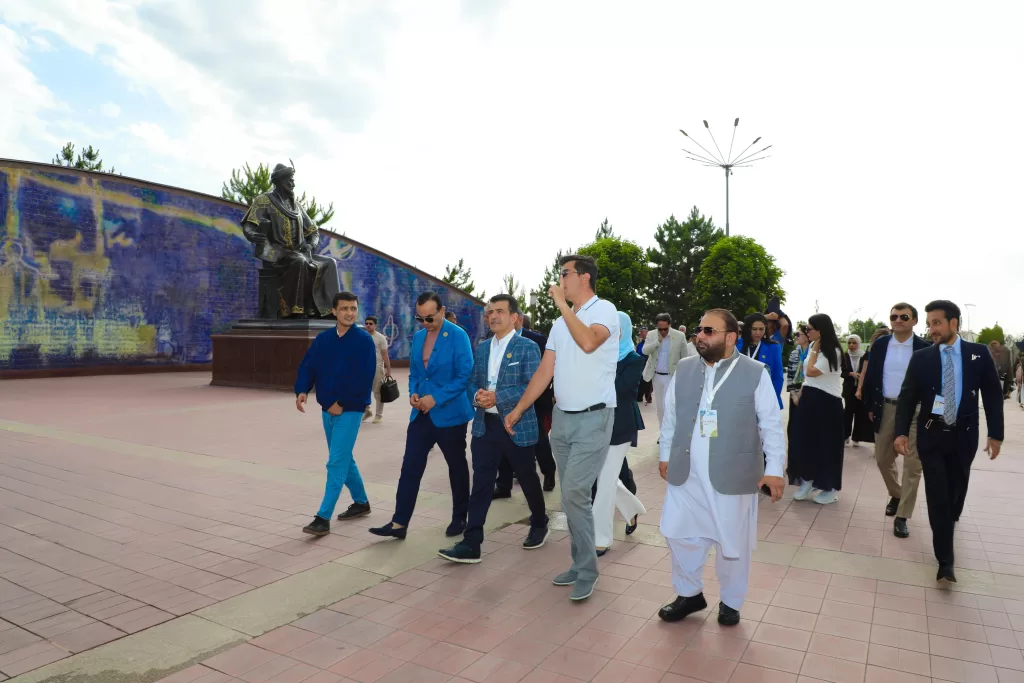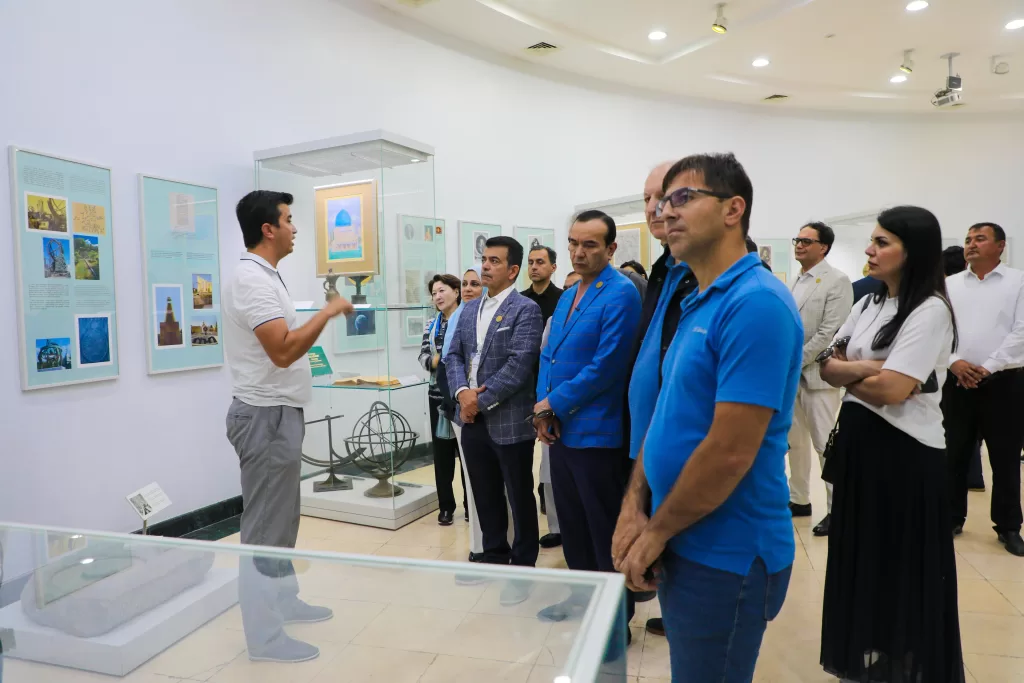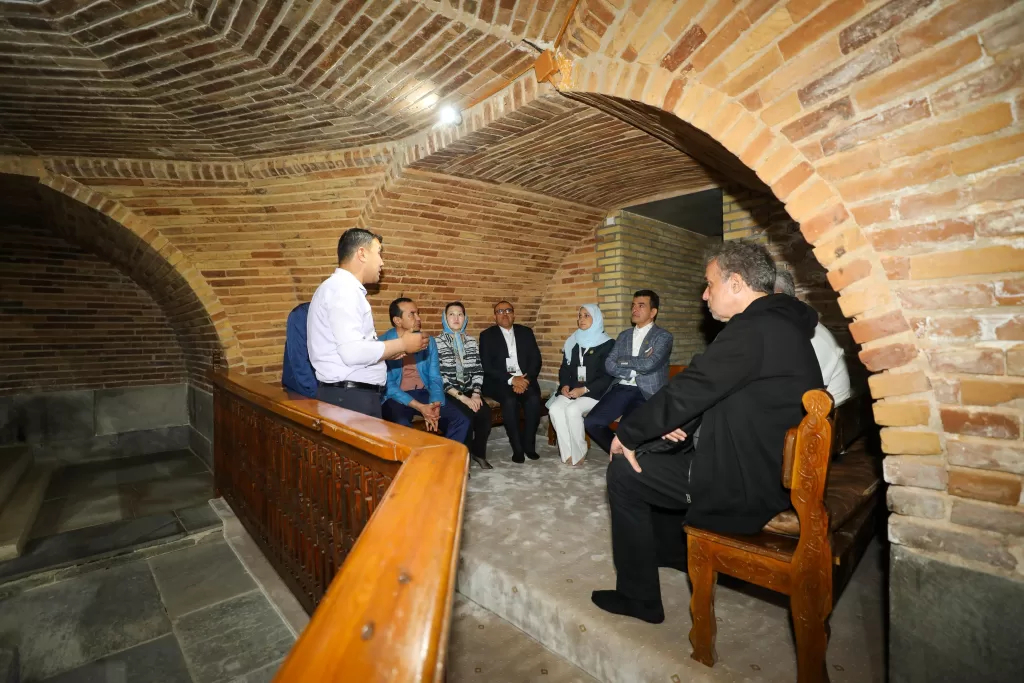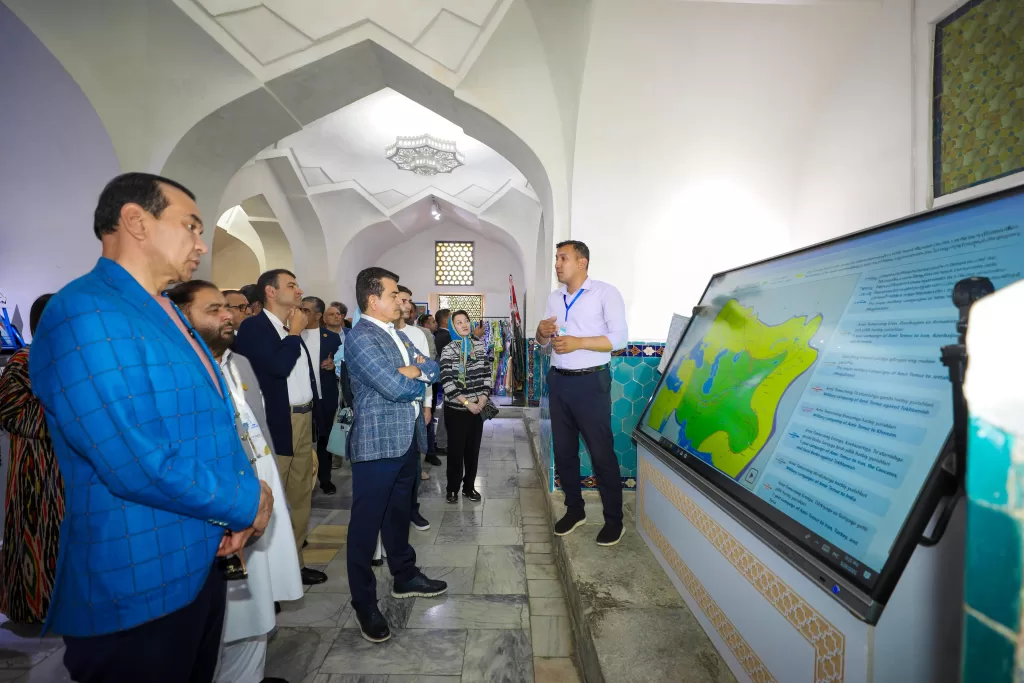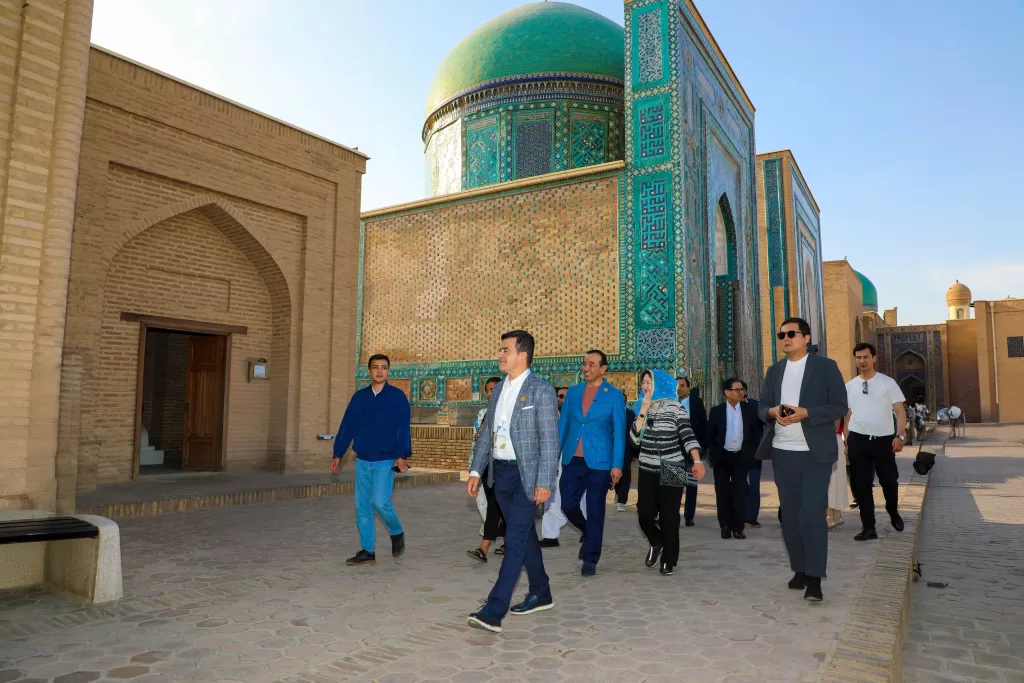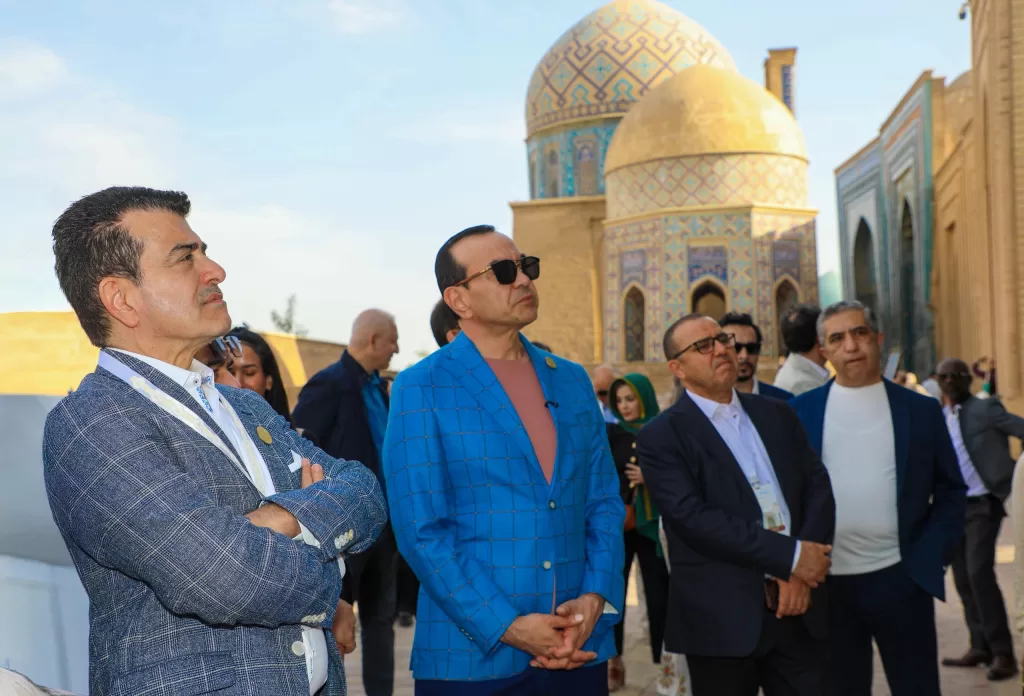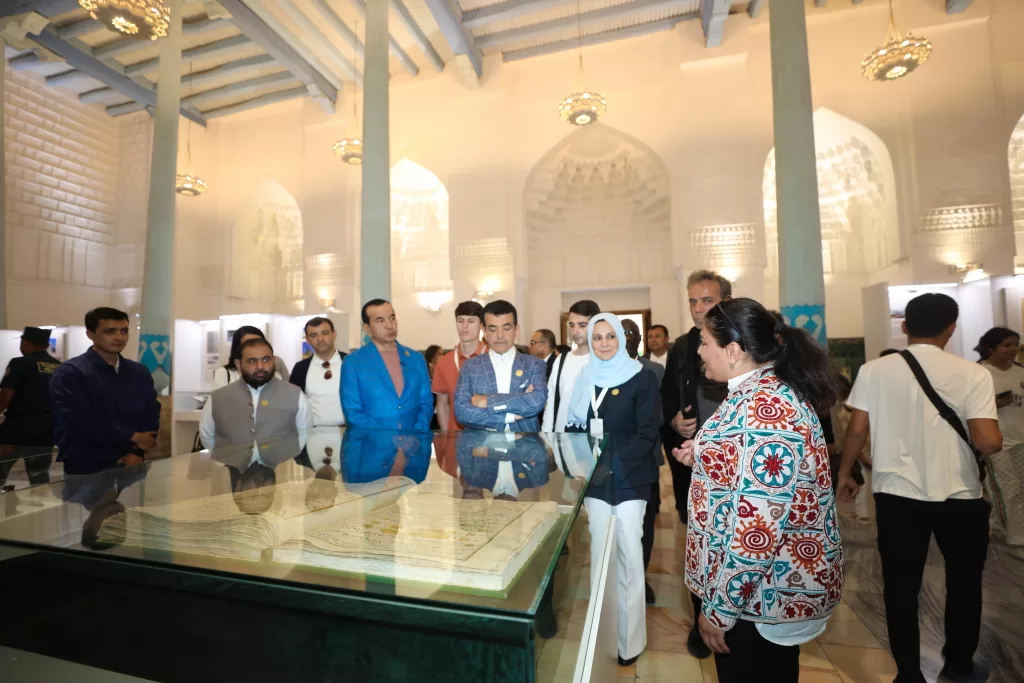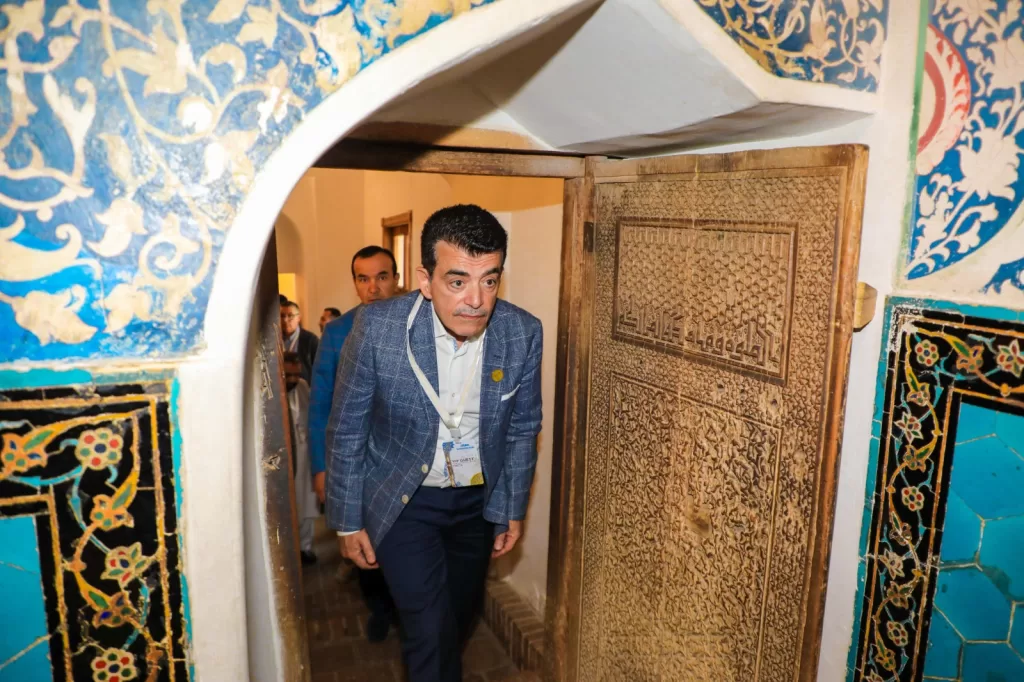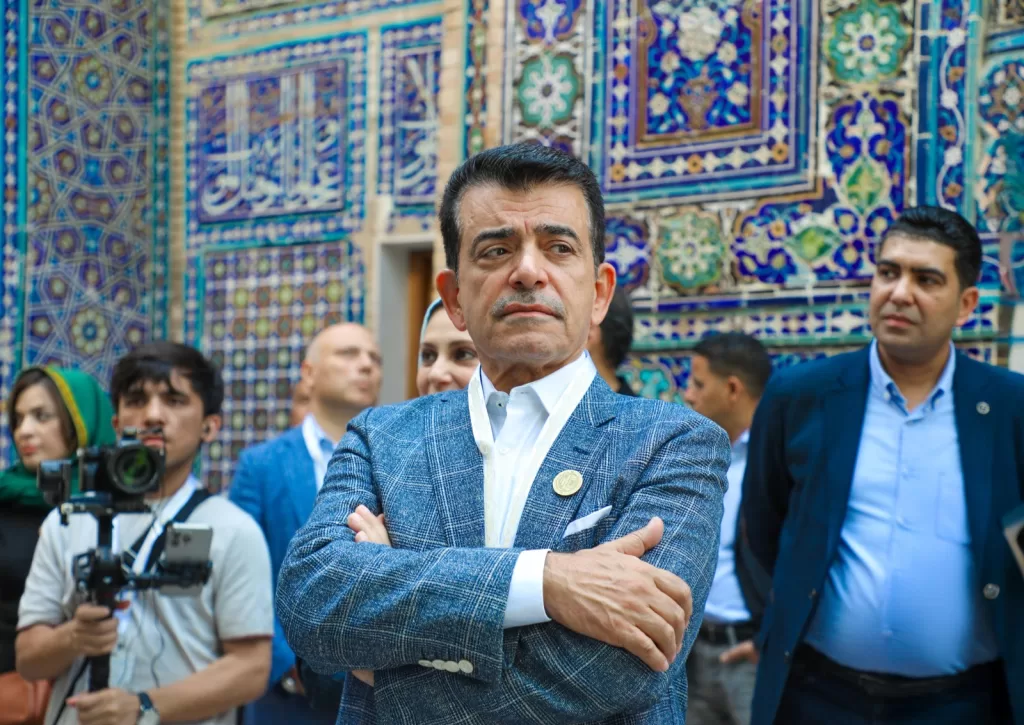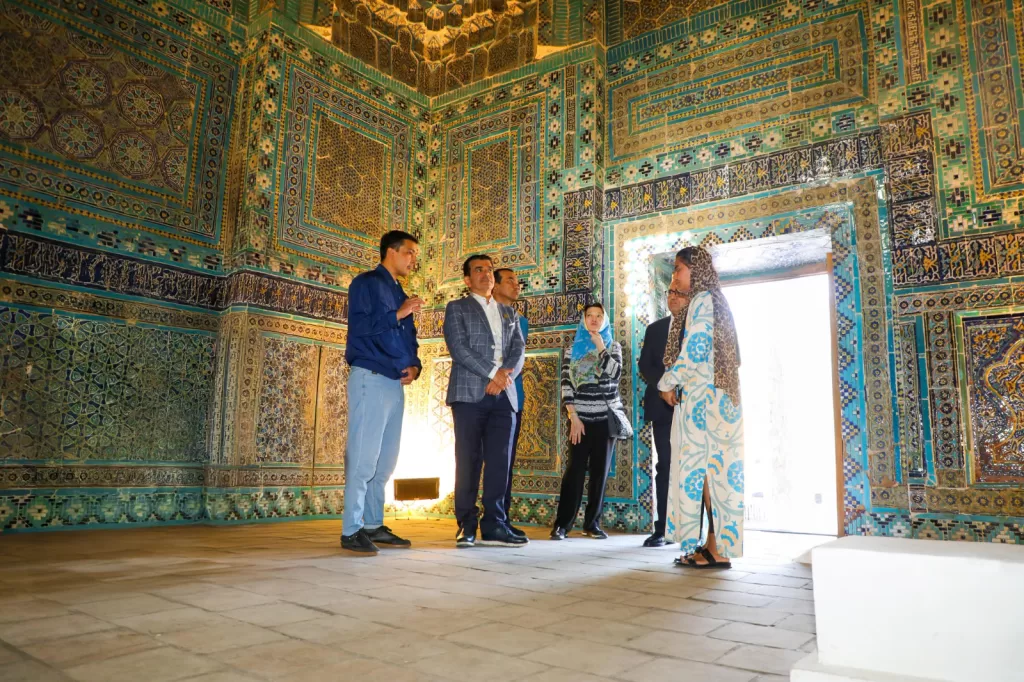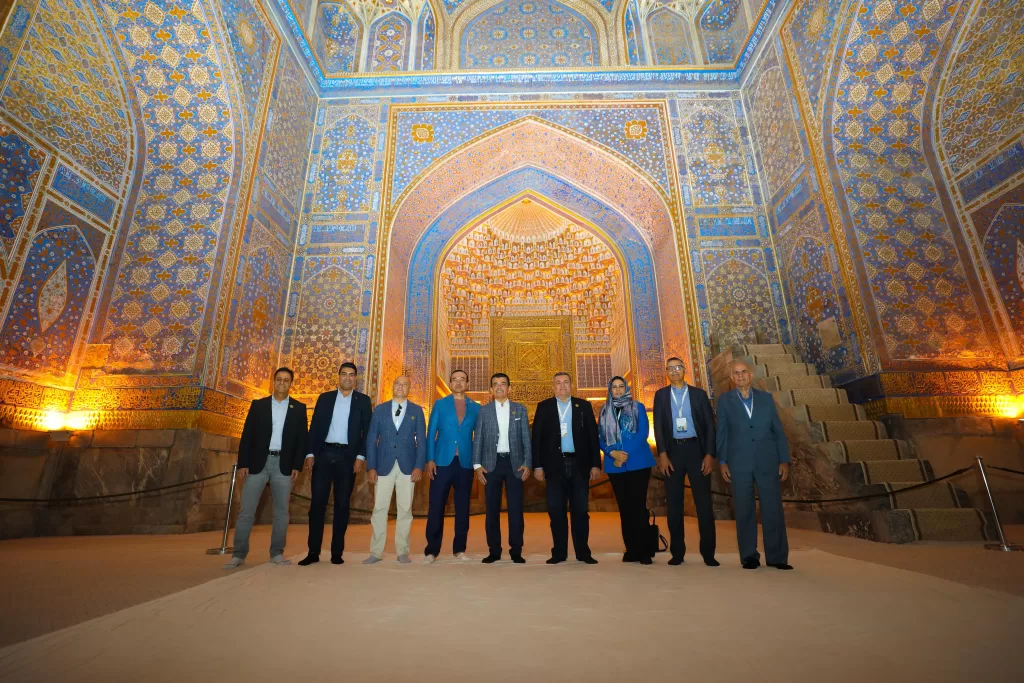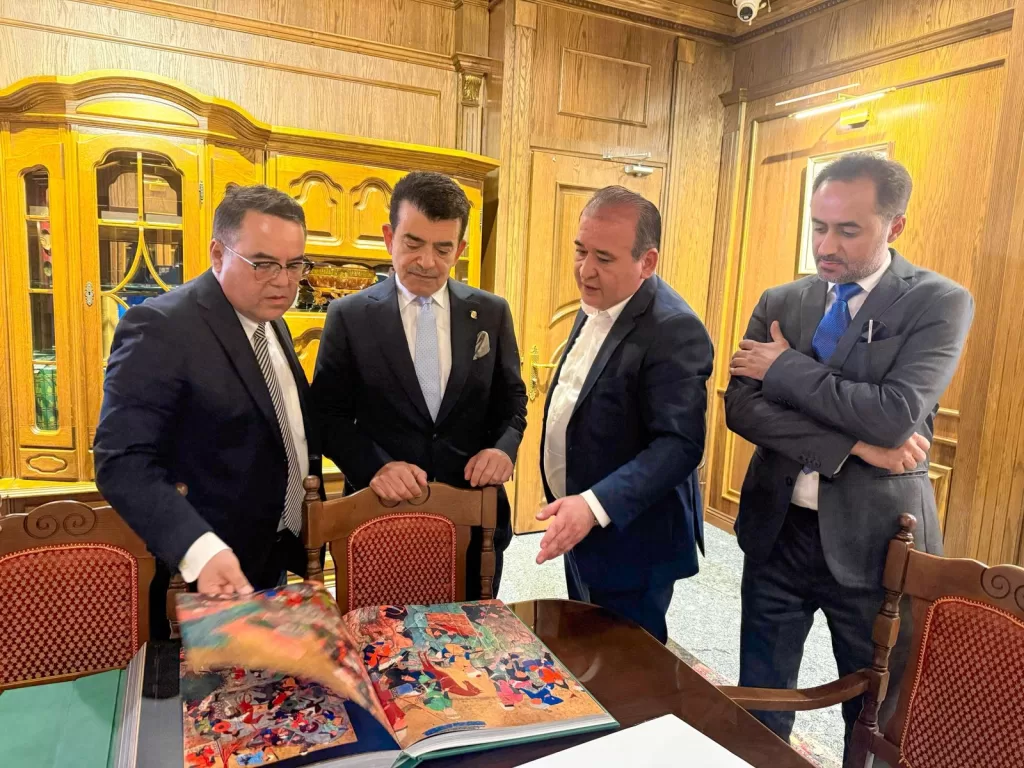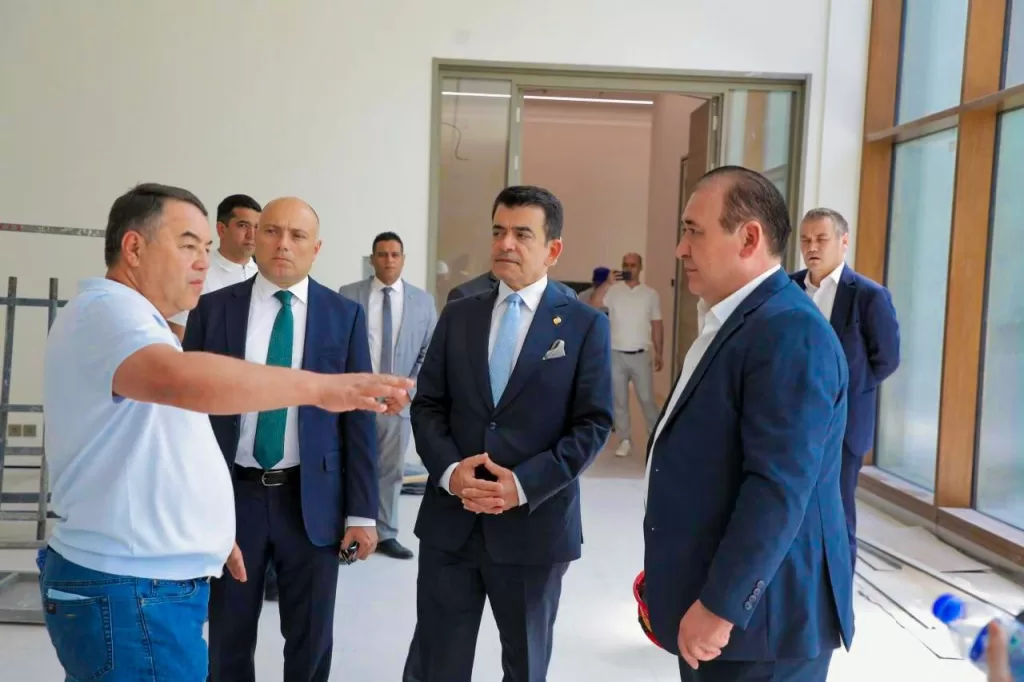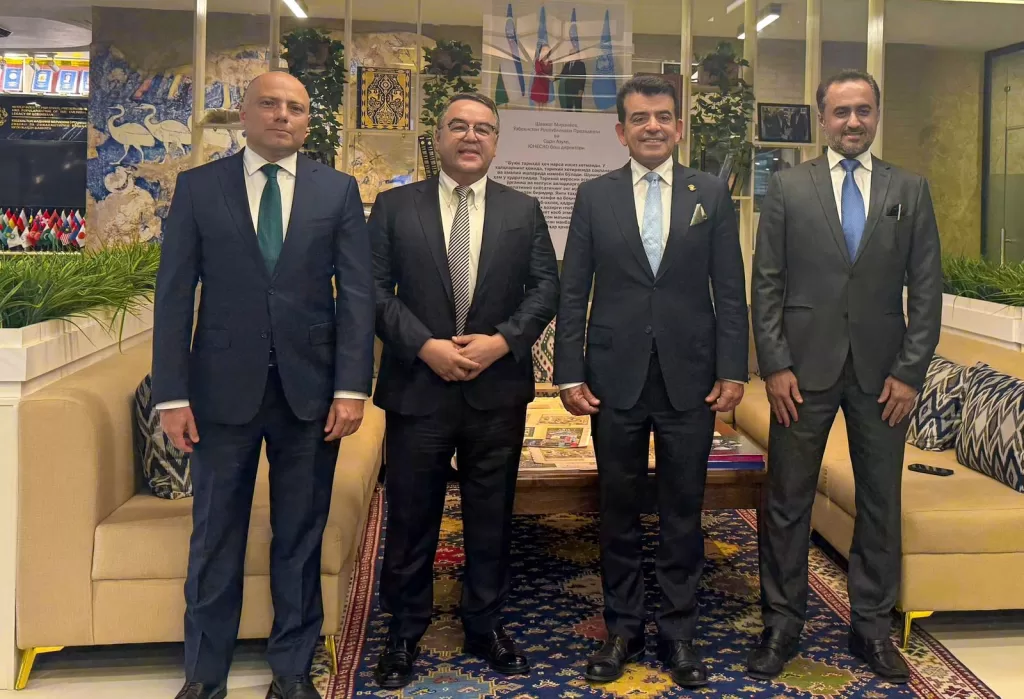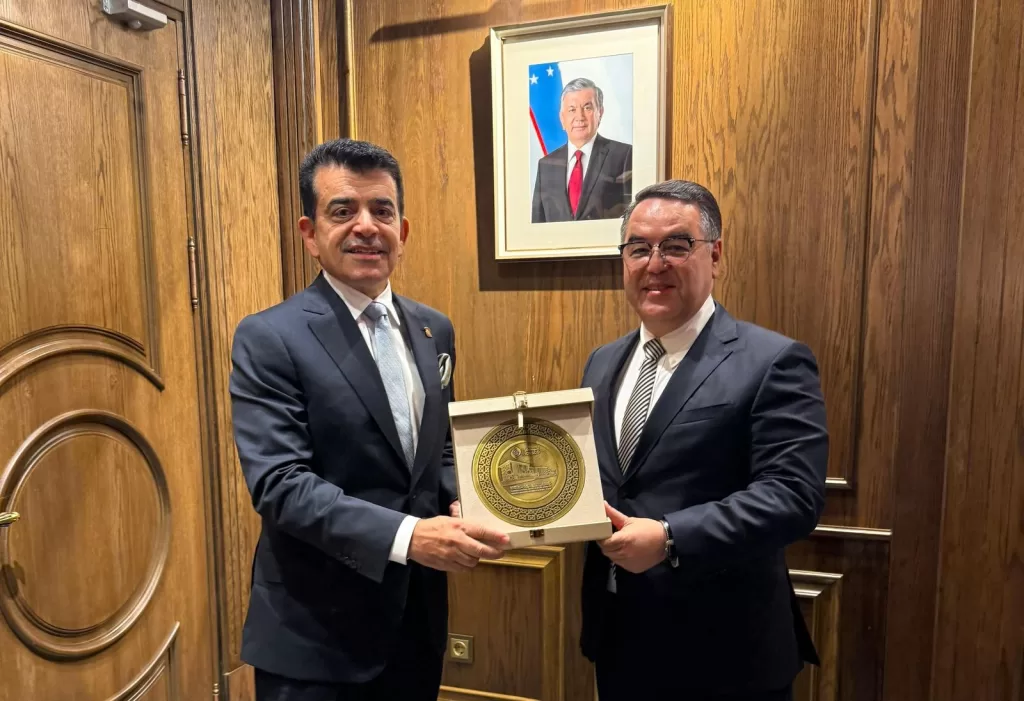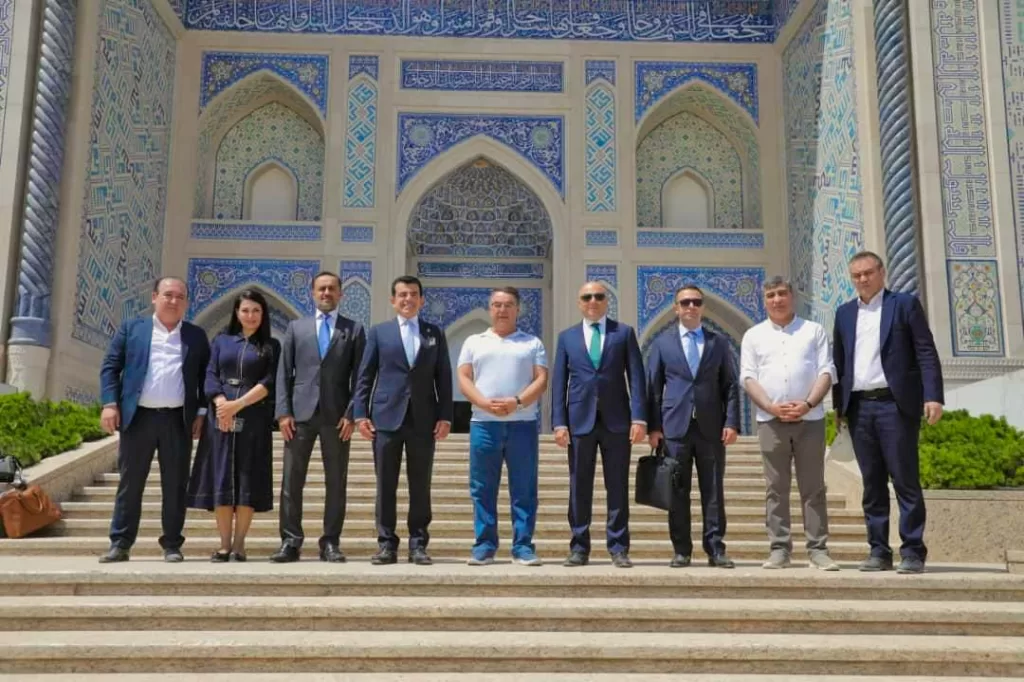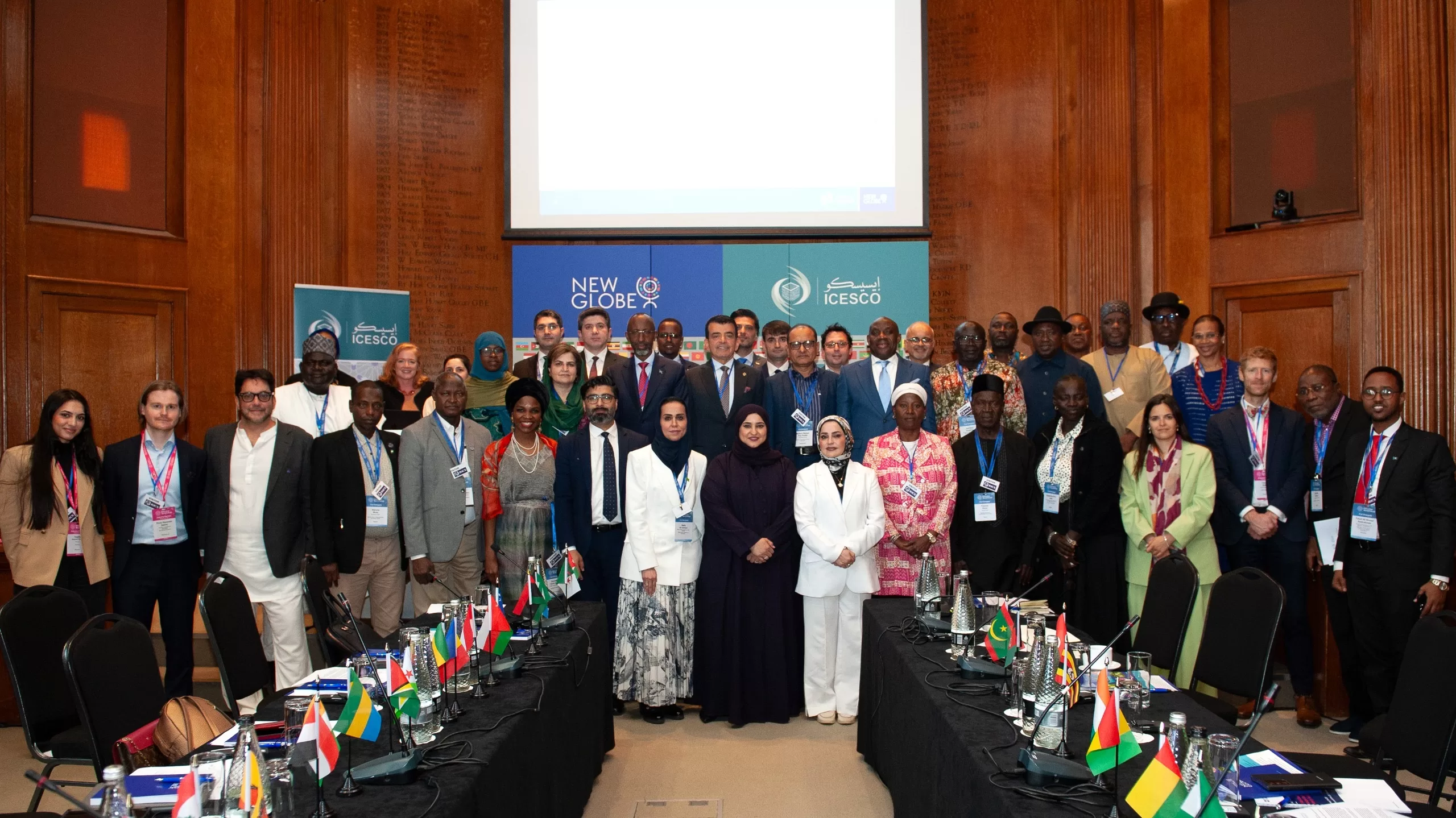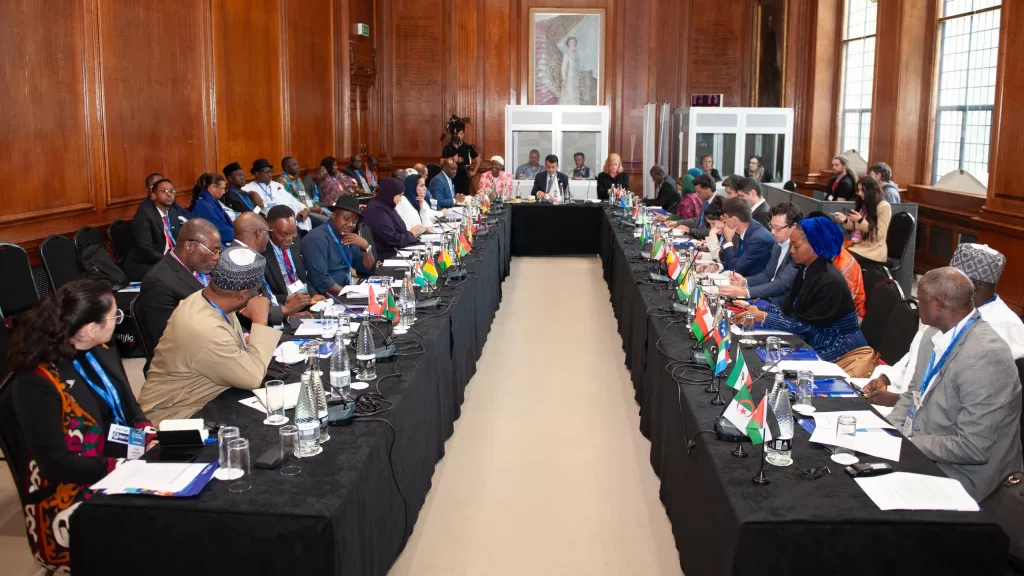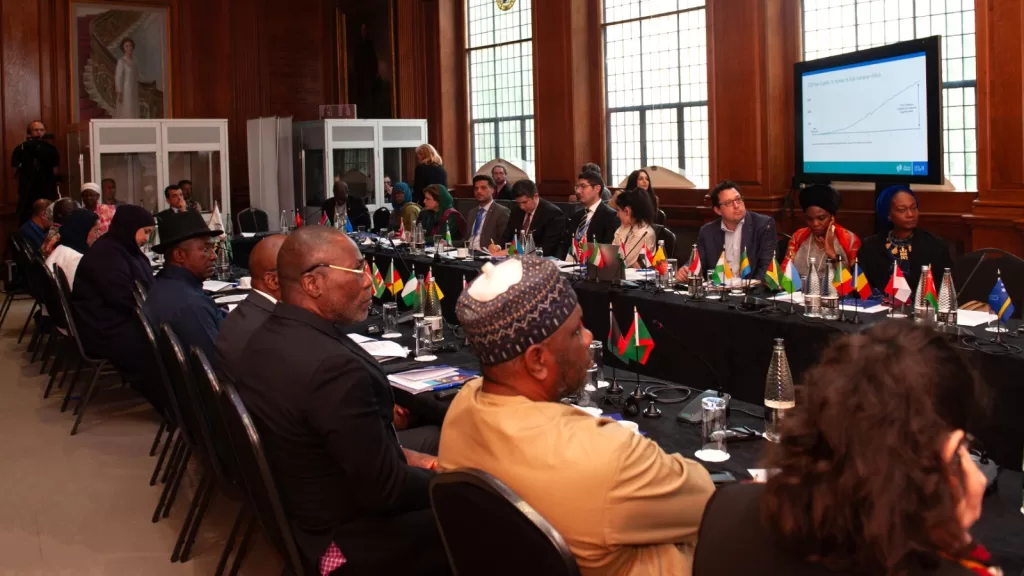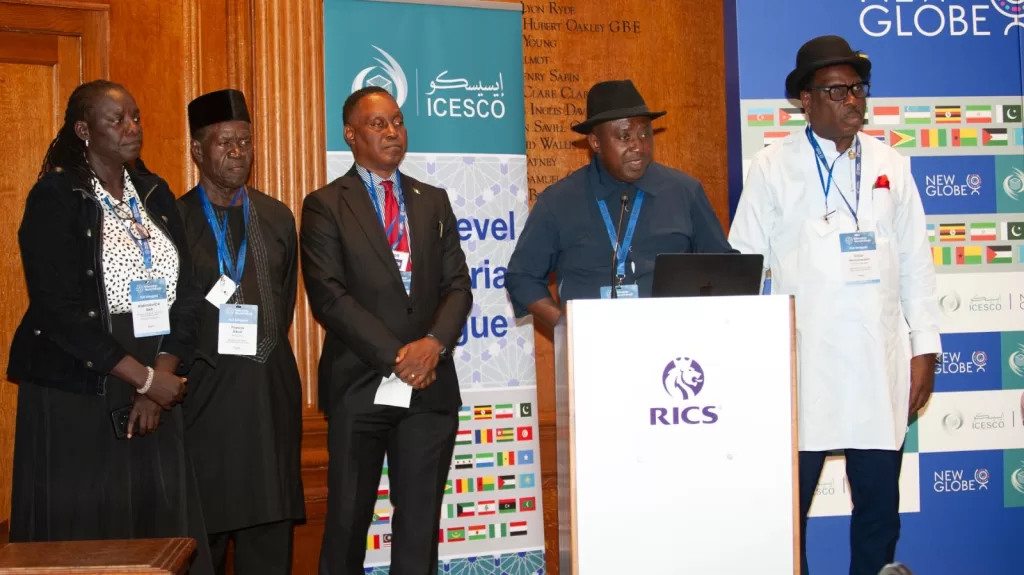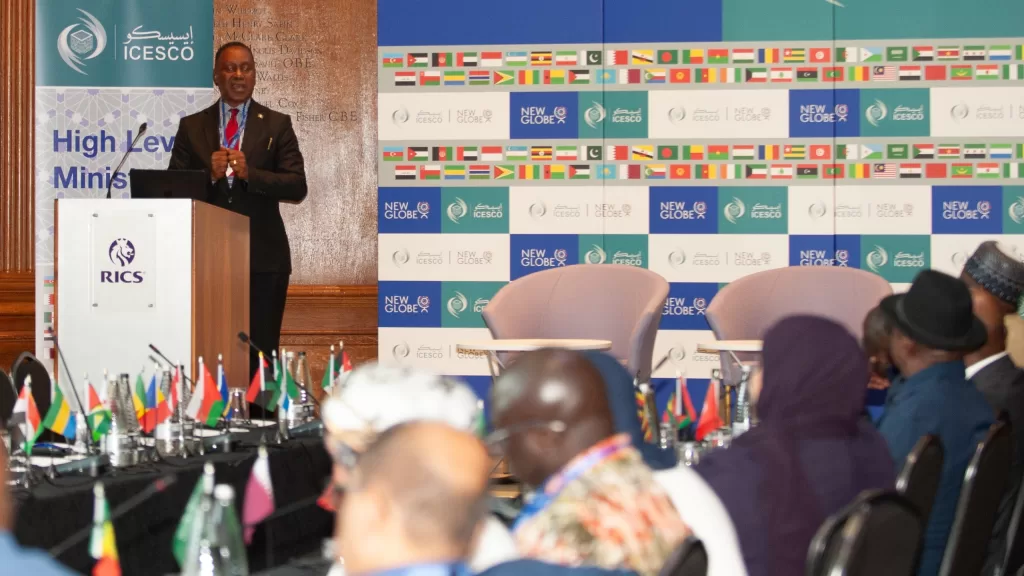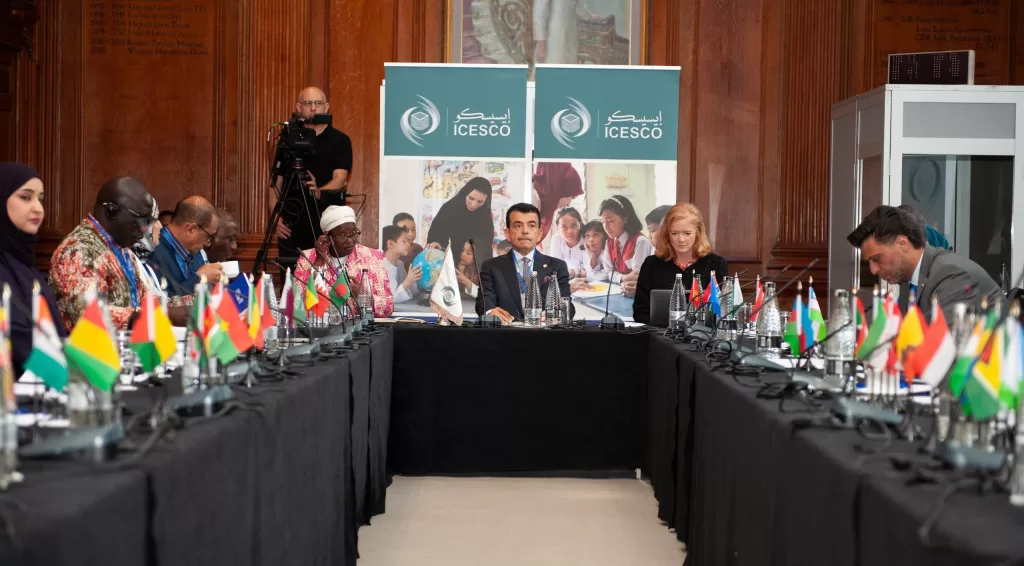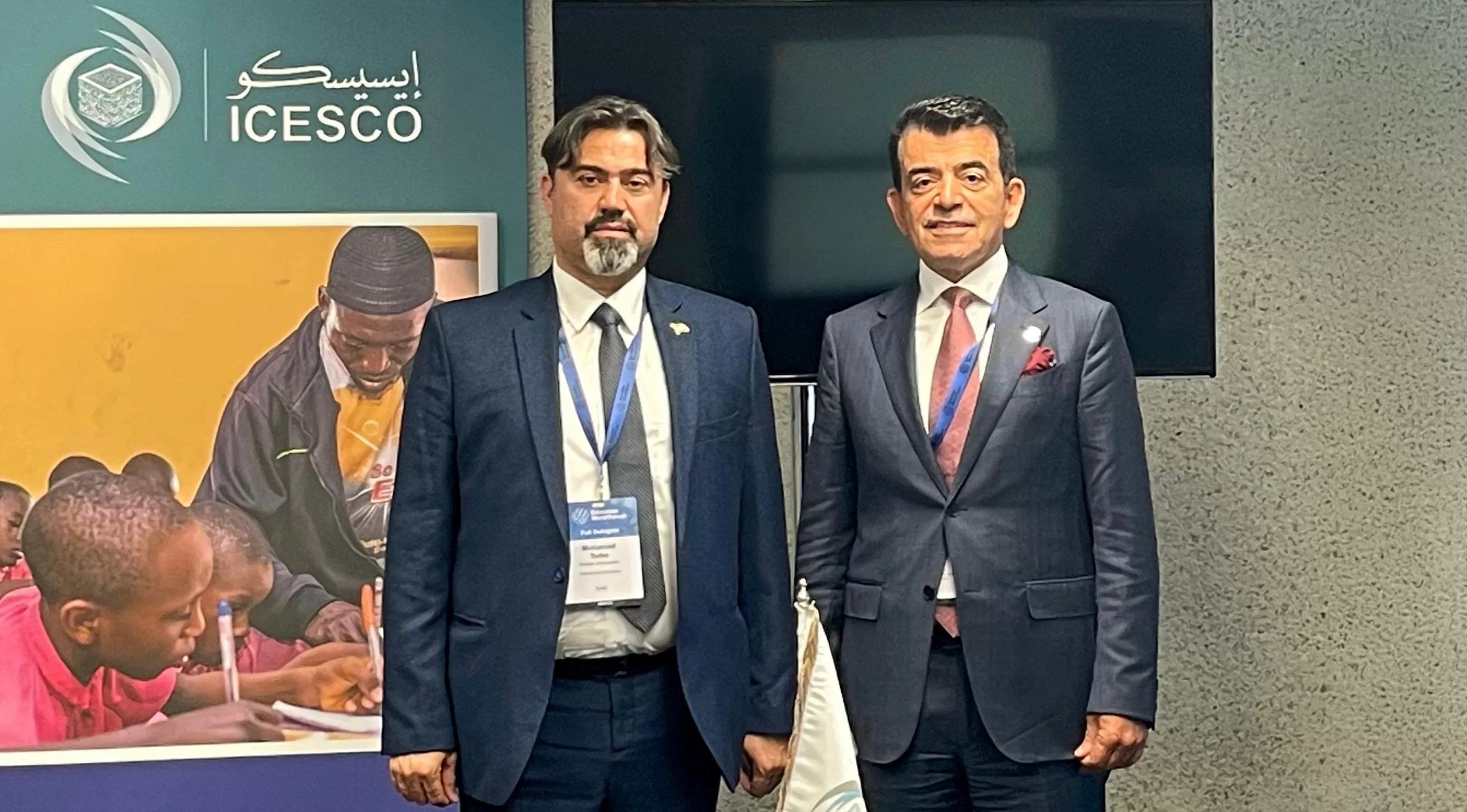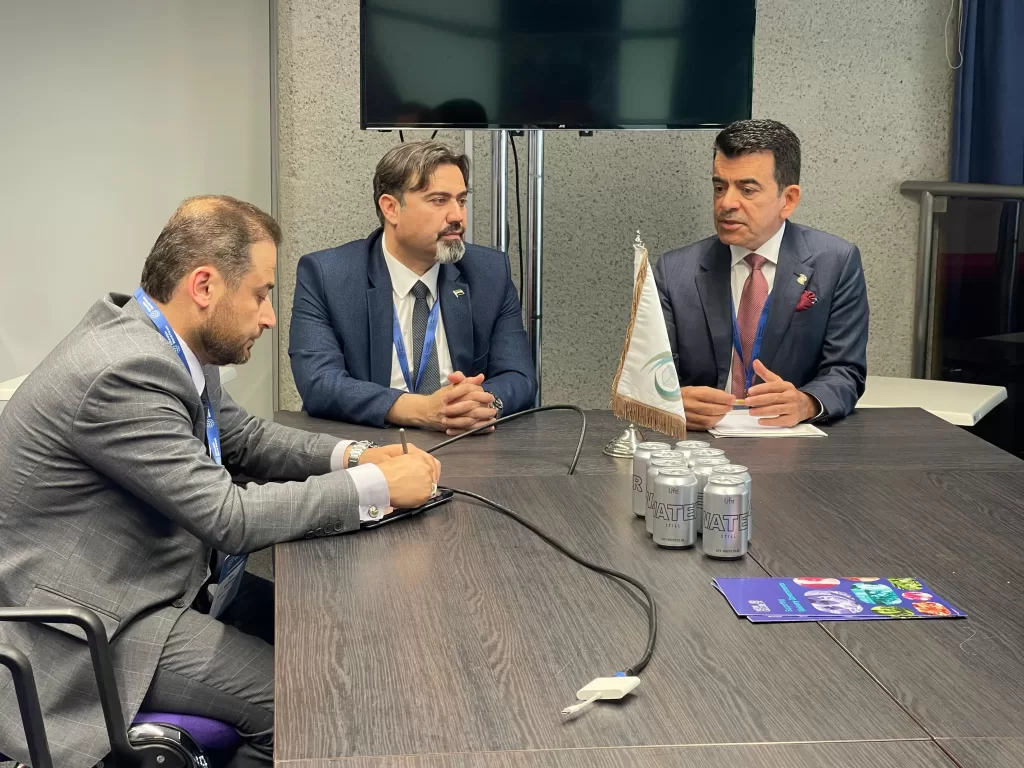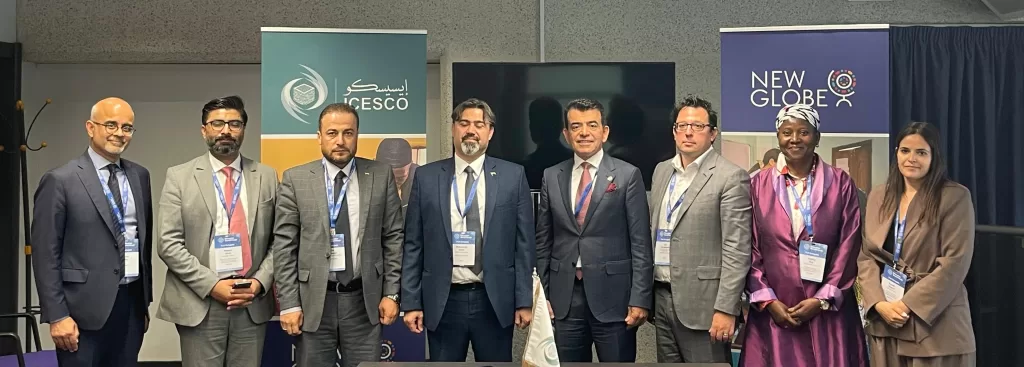Discussions focused on heritage preservation, green education, and climate change action
On the sidelines of the International Conference on Glacier Preservation, held in Dushanbe from 29 to 31 May 2025, Dr. Salim M. AlMalik, Director-General of the Islamic World Educational, Scientific and Cultural Organization (ICESCO), held a series of bilateral meetings with Tajikistan’s Minister of Culture, Minister of Education and Science, and Chairman of the Environmental Protection Committee, to explore avenues for strengthened cooperation in cultural heritage protection, environmental education, and sustainability.
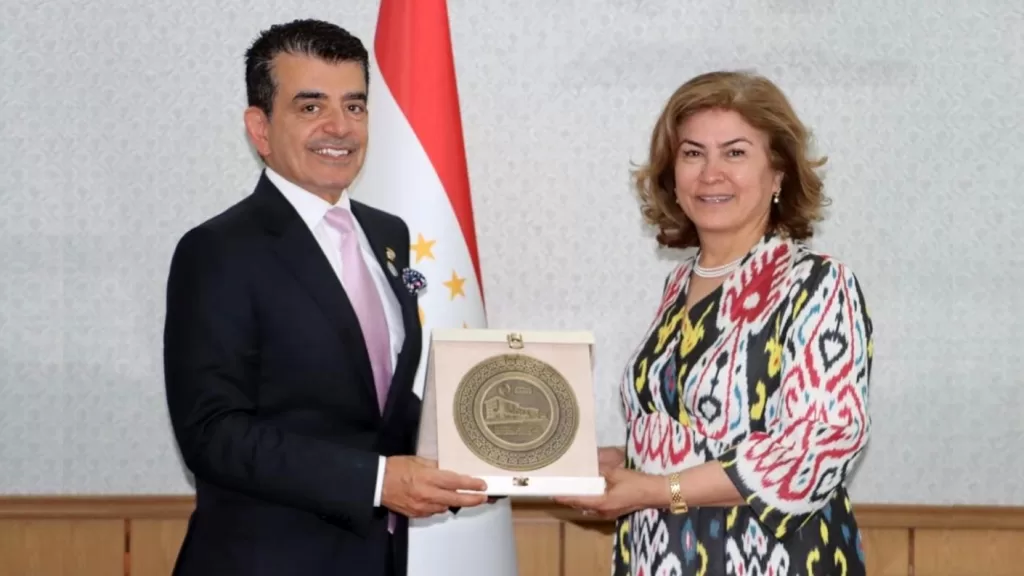
The first meeting, held with Tajikistan’s Minister of Culture, Ms. Matlubakhon Sattoriyon, discussed ways to further strengthen the existing cooperation in the field of preserving and documenting Tajik heritage. The two parties agreed to implement joint programs and initiatives in the fields of environmental culture, arts and literature, and supporting Tajik traditional industries, in continuation of the recent achievements made by the two parties, including the inscription of about 20 sites on ICESCO’s Islamic World Heritage Lists and the holding of several national workshops for workers in the field of heritage preservation.
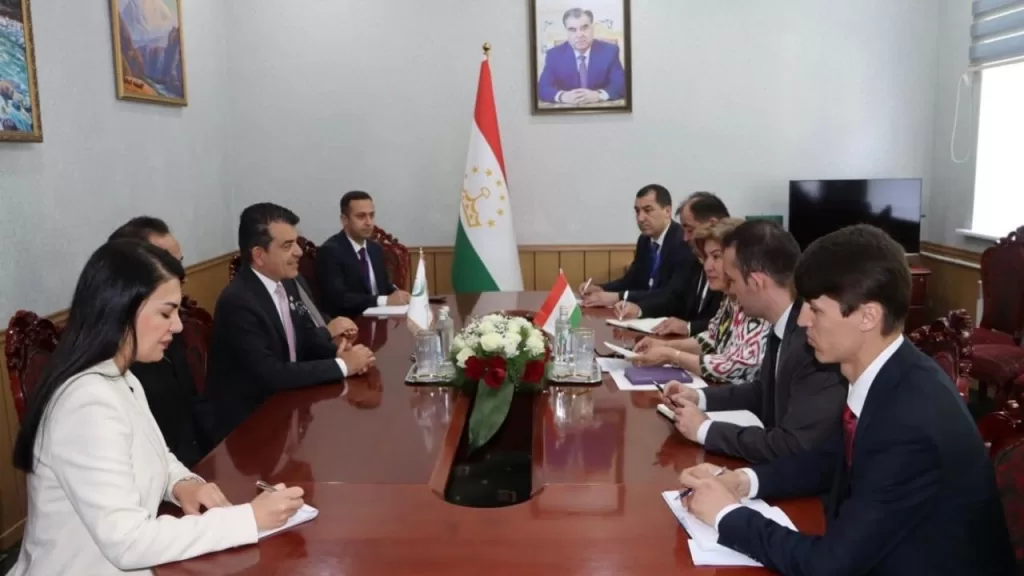
The ICESCO Director-General also met with Mr. Rakhim Hamro Saidzoda, Tajikistan’s Minister of Education and Science, discussing support for ICESCO’s “Greening Education” initiative, cooperation in teacher training, integration of artificial intelligence technologies in the educational process, and youth skills development to prepare them for tomorrow’s professions through joint programs and projects. Dr. AlMalik appreciated Tajikistan’s efforts aimed at strengthening its educational system and expressed ICESCO’s support for expanding cooperation in the fields of scientific research and innovation.
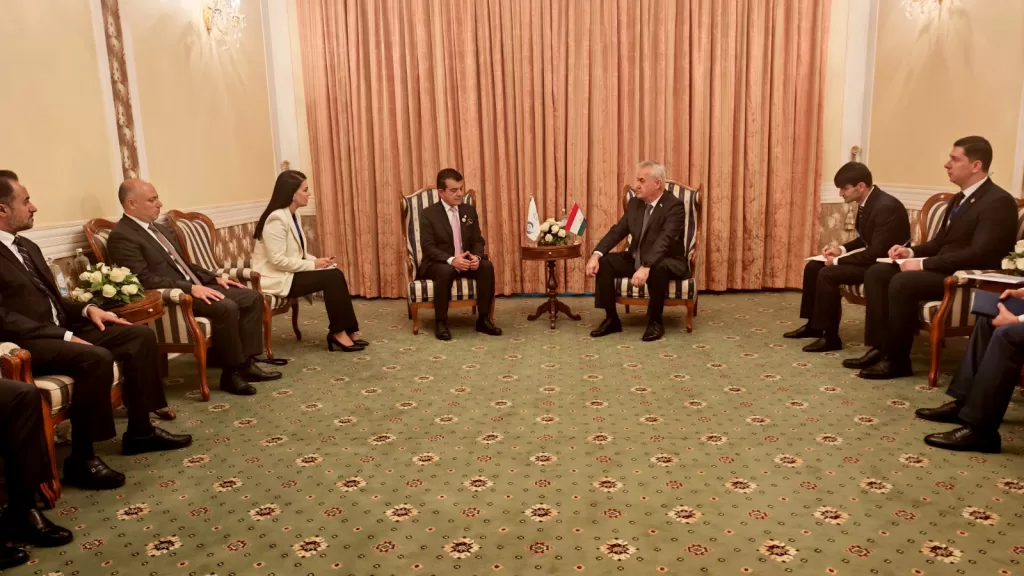
In the bilateral meeting with Mr. Sheralizoda Bahodur, Chairman of the Environmental Protection Committee, the two parties agreed to prepare a document on the protection of glaciers and submit it to the upcoming Conference of Environment Ministers in the Islamic World, given that these rivers are located in nine ICESCO Member States and have a direct impact on food and water security. They also stressed the importance of integrating topics related to climate change into school curricula, training teachers and enhancing their competencies, involving youth in environmental issues, and promoting community awareness of climate issues.
Dr. AlMalik expressed ICESCO’s willingness to support Tajikistan’s environmental goals. Mr. Bahodur commended the Organization’s efforts geared towards confronting climate change in the Islamic world.
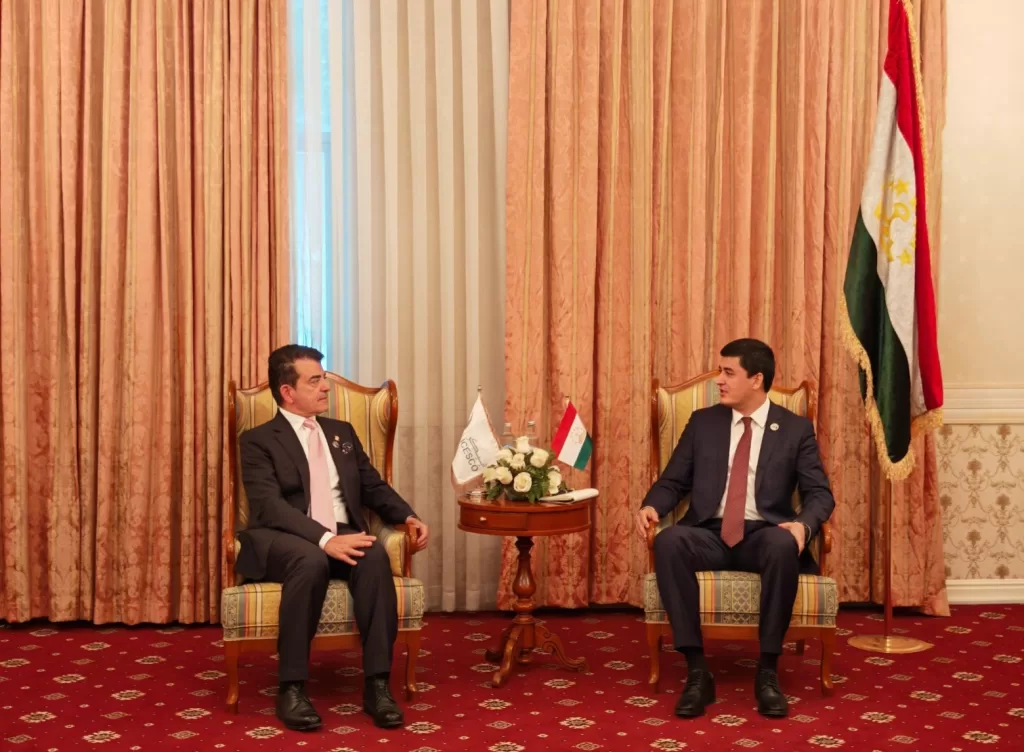
The meetings were attended by Mr. Anar Karimov, Head of the Partnerships and International Cooperation Sector, and Dr. Abdulhakeem AlSenan, Director of ICESCO’s Regional Office in Baku.

